FILM
Director Alison Klayman talks about her new film, ‘The Brink,’ which profiles Steve Bannon.
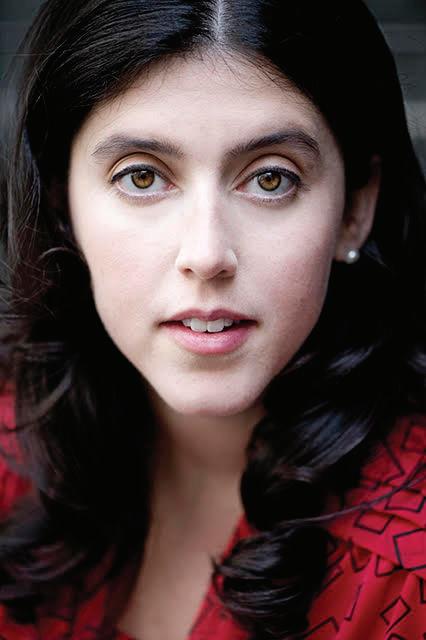
PASSOVER

Clean, fresh salads; a graphic novel Haggadah; and learning from the Four


Director Alison Klayman talks about her new film, ‘The Brink,’ which profiles Steve Bannon.

PASSOVER

Clean, fresh salads; a graphic novel Haggadah; and learning from the Four

 NICK ENQUIST | STAFF WRITER
NICK ENQUIST | STAFF WRITER
Ever since launching in 2016, the local chapter of Shevet Shemesh, the Israeli Scouts youth group, has hosted a Holocaust remembrance ceremony featuring its scouts. In the past, it has been a private affair, but this year the organization has decided to make the event public.
“Shevet Shemesh’s Holocaust remembrance ceremony has always been about honoring and remembering the lives lost in that tragic event and really ensuring that the Holocaust survivors are never forgotten,” said Shevet Shemesh Director Hadar Hamu. “It is our collective duty to make sure that we don’t forget. Opening it up to the community really fulfills that purpose.”
The ceremony will be held on Tuesday, April 16 at 6:30 p.m., at Scottsdale Community College (SCC). For this first public ceremony, the organization has partnered with the college as well as other community entities, including Congregation Beth Tefillah in Scottsdale, the Phoenix Holocaust Association, Jewish Federation of Greater Phoenix, Temple Chai in Phoenix and the Israeli American Council Arizona. The ceremony will be led by Beth Tefillah Rabbi Pinchas Allouche.
“We are so honored [to have] this Holocaust remembrance ceremony,” said Hamu. “We really try to promote strong Jewish values and leadership and we felt that making the event public
SEE HOLOCAUST, PAGE 2
Philanthropist and community stalwart Jean Grossman, who dedicated so much of her time and resources to the Phoenix Jewish community, died on Sunday, April 7. She was 91.
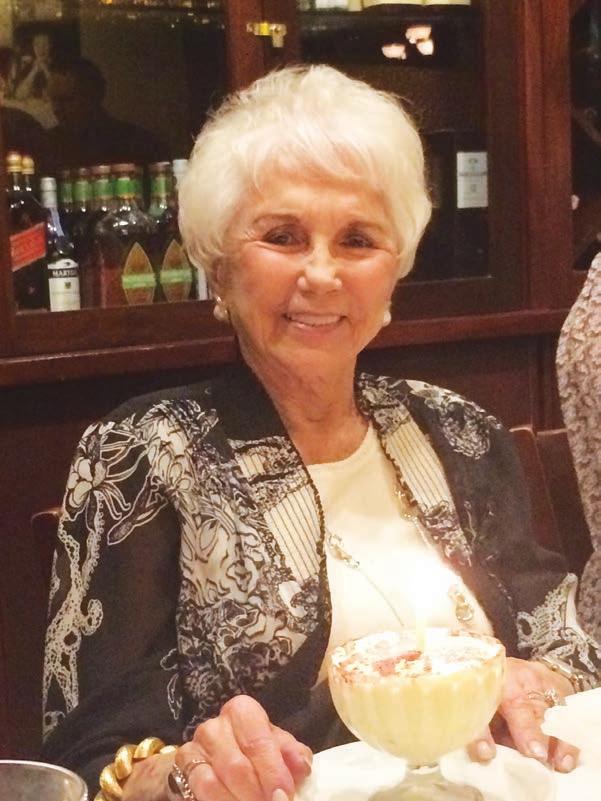
Born in 1927 in Sioux City, Iowa to Israel and Helen Menin, Jean developed a commitment to good works and philanthropy early on. When she was at college at the University of Minnesota, a

ISSUE DATE ETC.
Winter is coming — not to the Valley, of course, but to the phenomenally popular HBO show “Games of Thrones.” And there’s a group of area Jewish residents who are extremely excited for the new and final season. Members of the Jewish Nerd Crew, as they jokingly call themselves, are gearing up to enjoy the Jewish-created program in true GOT style, though perhaps with fewer layers than Kit Harington as Jon Snow and Emilia Clarke as Daenerys Targaryen, at left. See Page 5 for more.
 NICK ENQUIST | STAFF WRITERS
NICK ENQUIST | STAFF WRITERS
There are times when you need a little help finding the right legal form for your situation. At MyLegalEdge, we offer quality legal forms to give you the helping hand you need for your business and personal needs.
Our legal form selections include: estate planning, contracts, real estate forms, and many more. Visit our website at www. mylegaledge.com or email us at staff@mylegaledge.com
CONTINUED FROM PAGE 1
would be beneficial to everyone in that sense.”
Hamu said the event will help reach a larger audience of people across the Jewish community, as well as continue the educational work they’ve been doing with the children.
“We bring up any recent anti-Semitic events at our meetings to try and see what we can do on both the adult level and on the kids level,” said Hamu. “We always want to make sure that we’re talking about these events with the scouts, because there are horrible tragedies that are still happening today, unfortunately. We want to make sure that they understand what is going on so they know what that hatred is. We want them to know how they can combat that hatred through education and communal gatherings like this one.”
The ceremony will feature the 90 Shevet Shemesh scouts singing Holocaust remembrance songs and reading from selected works of poetry and essays. The participating organizations will send representatives to attend the ceremony along with seven Holocaust survivors who are members of the Phoenix Holocaust Association.
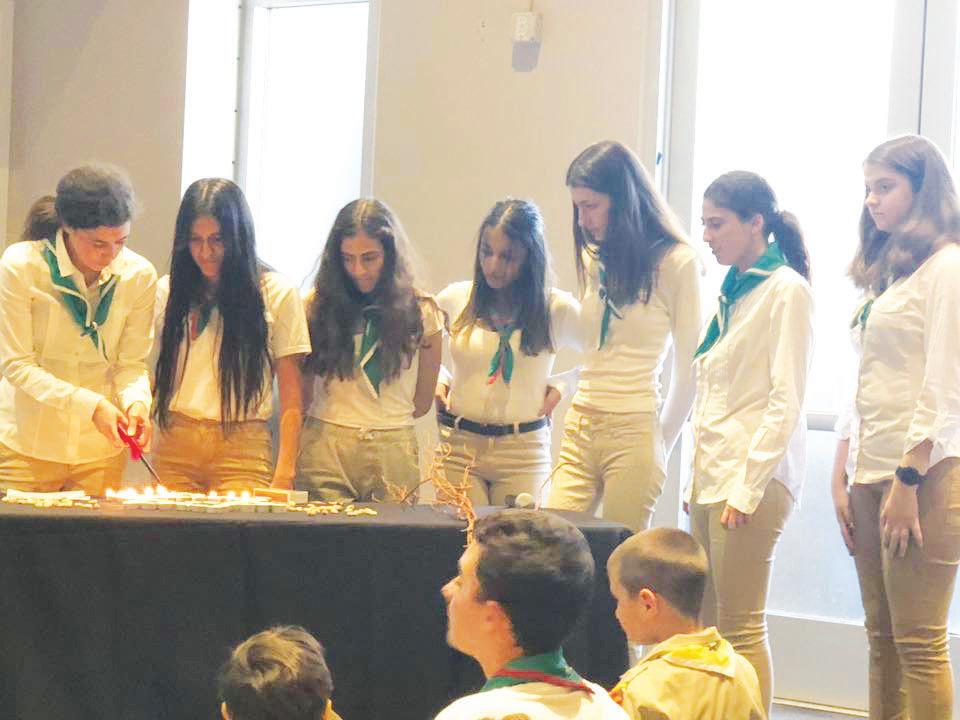
“Leaders from the community will be lighting candles alongside Holocaust survivors,” Hamu said. “Six candles to
represent the 6 million lives lost in the Holocaust.”
The ceremony is part of SCC’s annual Genocide Awareness Week, which begins April 15. The week features lectures, exhibits and speaking engagements by politicians, scholars, law enforcement officials and artists. Genocide Awareness Week Director John Liffiton, who will be at the ceremony to light a candle with a survivor, said he’s glad Shevet Shemesh is using the SCC as the site for this first public remembrance ceremony. He hopes the college will be a home for the scouts in the future.
“It’s important to remember the victims to work towards a world without genocide, but it’s also important to
honor each and every one of the victims because if we don’t then they will have died in vain,” Liffiton said in a prepared statement.
“Scottsdale Community College has been great to work with,” Hamu said. “They really helped us put this all together.”
Shevet Shemesh is part of Tzofim Tzabar, which is designed to connect North American Hebrew-speaking children. The local group meets weekly to participate in activities, all conducted in Hebrew, that are designed to foster leadership and the promotion of Jewish and Israeli values.
Hamu expects more than 600 people will attend the remembrance ceremony. JN
PUBLISHER | Jewish Community Foundation of Greater Phoenix




EDITORIAL DIRECTOR | Liz Spikol
STAFF WRITER | Nick Enquist
CONTRIBUTORS | Joel Zolondek
ADVERTISING SALES CONSULTANTS | Jodi Lipson
ADVERTISING COORDINATOR | Julie Goggin
PUBLIC NOTICES | Joan Romano

CIRCULATION | Bill Sims
Jaime Roberts, Publisher | 2013-2016
Florence Newmark Eckstein, Publisher | 1981-2013
Cecil Newmark, Publisher | 1961-1981
Pearl Newmark, Editor | 1961-1981
M.B. Goldman, Jr., Founder | 1948-1961
You will be missed, but your support of the Jewish community will live on forever.
Jean Grossman



CONTINUED FROM PAGE 1
friend convinced her to help raise money for the Jewish Federation of Minneapolis. She personally donated $25, a hefty sum at the time. From then on, she was tireless in her giving, as was her late husband, Harold Grossman, who died in 2005.
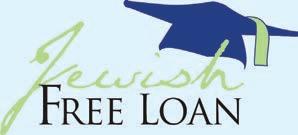
“Jean and Harold Grossman were such a blessing — true leaders, not to mention kind, warm, wonderful human beings,” said Jewish Community Foundation of Greater Phoenix President and CEO Richard Kasper. “Even in her final months, Jean shared her thoughts and advice with us for the future of our Jewish community — always looking for ways to contribute and leave us stronger than before.”
After meeting in college, Jean and Harold began their life of giving back in Minneapolis, where Jean served Jewish Federation in several capacities.
In 1981, they moved to Scottsdale and quickly made a philanthropic commitment to their new home. Jean served on the boards of the Jewish Federation of Greater Phoenix, the Bureau of Jewish Education, the Council for Jews With Special Needs (now Gesher), Kivel Campus of Care, Hadassah, National Council of Jewish Women, Talmud Torah, JCF and AIPAC.
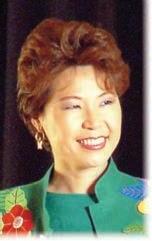
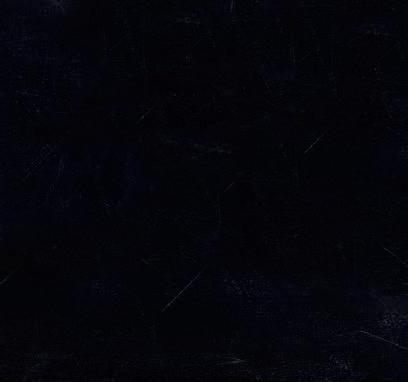


Jewish Federation of Greater Phoenix President and CEO Marty Haberer said that throughout his 33-year career in Jewish communal service, he met few people like Jean.
“Any opportunity you had to be with her was always a pleasure,” Haberer said. “Even if it was just a phone call, which would never last less than an hour, she was sharp as a tack.”
In 1994, the Grossmans’ gift of $1 million established the Harold and Jean Grossman Israel Experience, an endowment fund administered by the Jewish Community Foundation. That gift has allowed thousands of Jewish high school students to travel to Israel.
Neal Kurn, a close friend the Grossmans, said the couple left an indelible imprint on the Phoenix Jewish community.
“Most Jewish communities around the world have a handful of families who are regarded as leaders, who have a passion and commitment to Jewish causes, who are accessible and thoughtful, who have the financial wherewithal to assist, and to whom the community turns first in times of need or crisis,” Kurn said. “For the last 40 years or so, Harold and Jean together, and then Jean alone, were one of those
Phoenix families. In so many ways, big and small, publicly and privately, they provided personal and financial leadership.”
Other Grossman community projects include the creation of a Jewish studies chair at Arizona State University and the Israel Center at Federation. Jean and Harold both earned the Jewish Federation of Greater Phoenix’s prestigious Medal of Honor award.

Harold died in 2005 at 78 due to complications from Parkinson’s disease. After Harold’s death, Kurn said, Jean continued the family philanthropic tradition with “joy and grace.”
Rabbi Elana Kanter, director of the Women’s Leadership Institute, also appreciated Jean’s giving spirit. When she started the institute and the Women’s Jewish Learning Center, she asked for Jean’s help. Jean never hesitated, Kanter said.
“She gave all of herself, she gave all of her resources and all with a generosity of heart that was unmatched,” Kanter said.
“Our tradition talks about the joy that comes from doing a mitzvah, and she was an amazing example of that Jewish value and so many more. Her passing leaves a void in our community that will not soon be filled. But if ever someone has a lasting legacy, it will be Jean Grossman.”
Kasper agreed. “Their impact will be felt here for generations, thanks to the many organizations and programs they supported financially, and the passion and wisdom they shared with so many,” he said.
Until her final days, Jean worked to raise funds and support several Jewish initiatives. Most recently, she donated a generous gift to the Valley of the Sun JCC to expand its Parkinson’s disease fitness program.
“Jean was a remarkable woman and a monumental leader of our Jewish community,” said Valley Beit Madrash President and Dean Rabbi Dr. Shmuly Yanklowitz.
“She was someone who I could constantly learn from and be inspired by because of her deep commitment both to lifelong Jewish learning and to lifelong Jewish service.”
Jean is survived by her daughters, Nancy Leon, Mary Schuman and Molly Levitt; and her six grandchildren, David Schuman, Joanna Schuman, Ellie Levitt, Anna Levitt, Jenny Levitt and Sam Leon.
There will be a public shiva at the Valley of the Sun JCC on Thursday, April 11, from 7-10 p.m. A short maariv service with mourner’s kaddish will be at 7:30 p.m. followed by the opportunity for guests to share brief remarks. JN
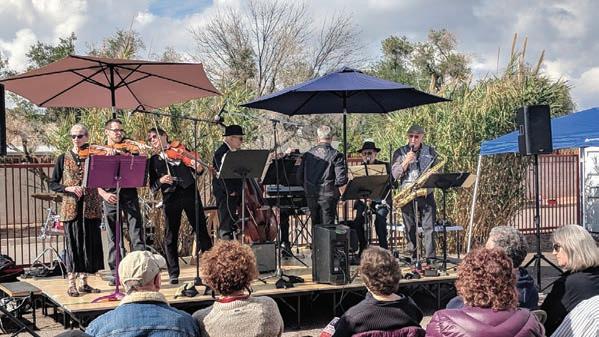
The Jewish Community Foundation of Greater Phoenix has awarded $225,136 in discretionary grants to new programs ranging from Holocaust education and interfaith outreach to senior enrichment and genetic testing.
The 2019 grants benefit the Jewish community locally and in Israel through JCF’s unrestricted endowment funds, the Jewish Women’s Endowment Fund and other field of interest endowments.
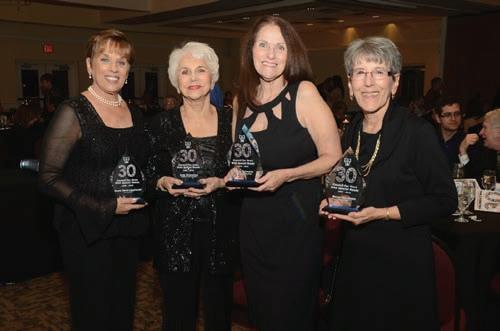
Four of the local grants are related to Holocaust education.
“We are excited to bring some new educational programs and speakers to the Valley, especially since Holocaust education isn’t mandated in Arizona,” said Francine Coles, chair of the Foundation’s Grants Committee, in a press release. “A recent survey by the Claims Conference showed major gaps in Holocaust awareness and a desire for Holocaust education.”
These programs are:
Bureau of Jewish Education, Veterans Day Teen Holocaust Forum: ($3,000) This oneday program for high school juniors and seniors provides the opportunity to learn about the Holocaust, its lessons that are relevant in today’s society and to hear from a Holocaust survivor about the imperative to fight injustice and intolerance.
Jewish Ensemble Theatre, Student matinees of ‘The Diary of Anne Frank’: ($15,000) For the past 24 years, The Jewish Ensemble Theatre has produced “The Diary of Anne Frank” for students
in the Metro-Detroit area. This grant is to produce a show at the Madison Center for the Arts in Phoenix with a goal is educate approximately 5,500 primarily Spanishspeaking students about the Holocaust and impart the important lessons of tolerance. Jewish Family & Children’s Service, Creative Aging : ($5,000) Creative Aging utilizes the arts to advance an assets approach to aging, tapping into and bolstering individuals’ strengths and potential, no matter their age. The engagement for Holocaust survivors project targets a new population for this program.
Phoenix Holocaust Association, ‘The Holocaust by Bullets’: ($15,000) Father
Debois, a French priest, renowned Holocaust educator and scholar in mass violence and genocide, will present the keynote address at the 2020 Focus on Holocaust Day and Genocide Awareness Week at Scottsdale Community College. The program includes the exhibit “Holocaust by Bullets,” and a corresponding teacher seminar, to help reach high school and college students. This three-part program will educate and engage Arizona students and the general
The JCF also awarded grants to the following local organizations and programs:
Chabad of Arizona, Smile on Seniors Rehab and Senior Living Facilities Program : ($5,000) This program will provide Jewish enrichment programming for West Valley Jewish seniors at rehabilitation, assisted living and memory care centers.

East Valley JCC, Jewish Life and Learning program expansion: ($11,652) The goals of the two programs, one for interfaith families and one for parents, include promoting Jewish culture to Jews and non-Jews in the East Valley; illuminating interfaith couples’ and other people’s understanding of the basics of Judaism; and ensuring that parents are helping their children gain leadership skills and improve their understanding about Jewish culture.
Hillel at Arizona State University, holistic student support: ($17,225) This grant is for hiring a rabbinic intern who would
lead high holiday services, support the enhancement of Shabbat, create new Saturday Shabbat programming and be a regular presence to provide support and pastoral care for students in need.
Jewish Genetic Diseases Center, Founder 3: ($15,000) This program aims to educate the Jewish community about possible risk factors associated with BRCA 1 or BRCA 2 founder mutations and to provide genetic counseling and access to genetic testing for interested individuals of Ashkenazi heritage between the ages of 25-65. Testing will be subsidized when insurance will not cover the cost.
Valley Beit Midrash, Alternative Young Professional Jewish Learning: ($3,500) This program will provide young professionals a space to learn about Jewish wisdom, social entrepreneurship and leadership, and engage in events that focus on character development through alternative engagement opportunities. These programs will be held at “third” spaces and some will feature a national thought leader.
Gesher Disability Services, summer camp inclusion resources: ($2,292) The Physically Disadvantaged Children’s Fund grant enables children with special needs to attend typical day camp programs. The JCF also put $18,102 into its discretionary reserve that may be used for requests that are cultivated or solicited by

JEAN GROSSMAN ל˝ז
You helped Gesher Disability Resources grow into what we are today. We will miss your stories and your smile. Our gratitude is immeasurable.2015 Gala Honorees, Joyce Berk-Lippincott (agency co-founder), Jean Grossman, Suzanne Monashkin (accepting for Shelia Schwartz), and Becca Hornstein (agency co-founder). Photo M. Gluckman The East Valley JCC received a grant for its Klezmer Fest, which included a film screening, a Yiddish Experience and a Klezmer Music Festival.
the foundation outside of the annual grant cycle, or for responses to emergencies, man-made or natural disasters affecting the Jewish community.
In the summer of 2017, the JCF introduced a new small grants program, which allows local nonprofit organizations to apply for a one-time grant of up to $5,000 outside the annual grant cycle for a program or project that serves the Greater Phoenix Jewish community.
The six programs that received small grants totalling $9,100 this year are:
Day of Learning: ($500): The Bureau of Jewish Education brings together preschool teachers from every Jewish preschool in the Valley for a meaningful day of learning. This grant to the Valley of the Sun JCC will be used to help bring in keynote speaker Lisa Murphy, who links hands-on activities to educational standards and her commitment to creating play-based early childhood environments.
By Choice : Experiential Learning for Jewish Converts: ($3,500) This Valley Beit Midrash program is to create a retreat for those looking to, or who have recently, converted to Judaism.
Initiation of the Yeshiva High School of Arizona Venture Crew: ($1,600) This grant initiates the formation of a Venture Crew at Yeshiva High School of Arizona. This is a program of the Boy Scouts of America that seeks to provide teens with skill acquisition, leadership experience, community service and character development while planning and leading their own adventures.
Shabbos Project 2018: Great AZ Men’s Event: ($1,000) Shabbos Project Arizona, Inc. is part of a global, grass-roots movement and this grant was for an educational event just for men.
Klezmer Fest: ($1,250): The East Valley JCC hosted the screening of “The Last Klezmer,” a Klezmer Music Festival, a Yiddish Experience and an art exhibit from the David Labkovski Project in January 2019 with the goal of increasing people’s understanding of Ashkenazi Jewish music (especially Klezmer music), culture and history.
Jewish Unity Learning: ($1,250) In this program by Project Inspire Arizona, participants are matched for weekly learning sessions on a Jewish topic of their choice. The program includes socializing
and monthly learnings with a speaker for the entire group, to build friendships and build a grassroots Jewish unity movement.
Nine small grants totalling $16,000 funded projects from August 2017 through March 2018. These were:
• Young adult & LGBT programming for Schmooze ($1,500)
• Limmud AZ ambassadors ($750)
• An alumni retreat for the Women’s Jewish Learning Center ($3,500)
• Cteen Kosher Food Club for Chabad of the East Valley ($2,000)
• The Arizona Jewish Historical Society’s 2018 Summer Music Series ($1,500)
• A Jewish Genetic Diseases Center education & screening event at Arizona State University ($3,500)
• The Red Rocks Music Festival performance of “In My Father’s Footsteps” ($1,000)
• The expansion of the Greater Phoenix Jewish Film Festival to Tempe ($1,000)
• The development of JSisters at ASU ($1,250)
The recipients of the Israel grants are: American Jewish Joint Distribution Committee, Families First: ($5,000) To help low-income families break out of poverty, Families First focuses on empowering families to be active participants in improving their own lives. In addition to addressing issues such as financial, health and employment needs, Families First focuses on strengthening clients’ overall state of mind.
Bina: The Jewish Movement for Social Change, Mechinat Masabacha ( Journey through Israeli Society) : ($10,000) During this pre-army program for Jewish and Arab Israeli high school graduates, 30 young adults aged 18-19 embark on sixmonth immersive journeys through Israel, gaining a deep familiarity with diverse communities in Israel, including an Arab village, a religious Zionist settlement community in the West Bank and a kibbutz.
Hillel — the Right to Choose, Support for Former Haredi Single Mothers: ($7,500) Hillel provides resources to help these women triumph over integration challenges, effectively serve their families and achieve financial independence. Program components include housing assistance, mentorship, psychological counseling, empowerment workshops, cultural and educational activities, and legal aid.
Plan now to manage summer electric bills. Make sure you’re on the plan that’s right for your family. And don’t wait, have your AC unit checked today. Sign up for Budget Billing and pay about the same amount each month all year long. For qualified customers who need help with their bill, we o er discounts and other assistance programs. These are just some ways we’re working to keep Arizona’s power clean, reliable and a ordable.

ITworks, Securing Israel’s Future Through Employment,Vocational Training and Placement for Single Mothers: ($5,000) The program’s goal is to guide a group of single mothers through a comprehensive framework until they have attained quality employment in high-tech.
Kol Israel Haverim, Gateway to Graduation (Shearim LeBagrut): ($5,000) The program targets schools in socio-geographic peripheries whose Bagrut eligibility rate (e.g., percent of students who complete a full Bagrut diploma) is low.
Merchavim — The Institute for the Advancement of Shared Citizenship in Israel, Arab Teacher Integration in Jewish Schools: ($10,000) This joint initiative with the Ministry of Education aims to place 500 Arab Israeli teachers in Jewish schools to teach core subjects (English, math, and science). The program addresses the realities of Israeli’s separate school streams, in which Jewish students may never have a substantive and sustained encounter with an Arab citizen or learn anything about the Arab culture.
Orr Shalom, Economic Empowerment for Women: ($12,000) The program provides graduates of Orr Shalom’s out-of-home placements, foster care and therapeutic family group homes, the support they need as they enter independent life, post army or National Service.

Presentense, Yazamiot Venture Accelerator for Haredi Women in Jerusalem: ($5,000) This eight-month program serves Haredi women entrepreneurs in Jerusalem, and includes an indepth entrepreneurship curriculum with seminars on topics such as business model development, value proposition, marketing, pitching, and budgeting; hands-on workshops; high-level mentoring and consulting; and round-table discussions with relevant experts.
Sindyanna, Sindyanna’s Visitors Center: ($5,000) An NGO economic endeavor designed and operated by Jewish and Arab women, Sindyanna strives to mitigate poverty by training and empowering Arab women. These women will learn new skills (catering, basket weaving, Hebrew) and guidance and marketing exposure to be able to enter the job market. The visitor’s center serves to create a bridgebuilding venue between the Jewish and Arab societies.
Women’s Spirit, Crossing the Street : ($10,000) This community-focused, longterm program provides women with tools, knowledge and support to help them break free from violence and build a safe and independent life. The program includes: employment skills workshops, mentoring/coaching by trained volunteers, small business training for independent business owners, professional skills trainings, computer/language courses, financial literacy, and job placement.
Yozmot Atid, Taking the Leap: ($5,000) The program, a small business incubator program for Israeli women earners from the lowest income brackets, is designed to help each participant develop, launch and grow a viable business within one year.
Shekel Community Services for People With Special Needs : ($9,947) The Physically Disadvantaged Children’s Fund grant is for medical supervision at Hettena Day Center, a residential home for severely developmentally disabled children.
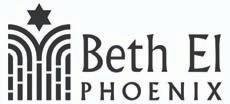
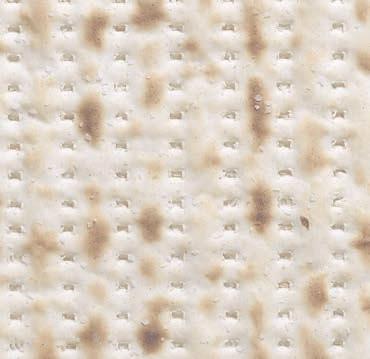
The grants from the Jewish Women’s Endowment Fund are:
Adva Center, The Power to Empower! Coalition Building Among Mayoral Advisors on Gender Equality: ($5,000) The program will directly serve about 60 Jewish and Arab women Mayoral Advisors on Gender Equality from an equal number of local authorities in three geographical clusters who stand to gain knowledge and acquire the skills required to succeed in their assignment of improving the status of women in their localities.
The Center for the Advancement of Women in the Public Sphere at the Van Leer Jerusalem Institute, The Gender Index: A Database for Social Equality Action: ($10,818) A critical knowledge tool, it informs decision-makers and activates social change agents concerned with promoting gender equality in Israel. The Index provides a detailed annual picture of gaps between women and men in multiple fields of life, including education, political and economic power, culture and media, employment, gendered segregation of professions, poverty, family status, violence against women, health, Arab society and the periphery. The Index pinpoints areas of severe gender inequity and makes these statistics available to policy-makers, activists, educators and researchers through an easily accessible digital platform. JN
For more information about the Israel grants, see the online version of this story on jewishaz.com.

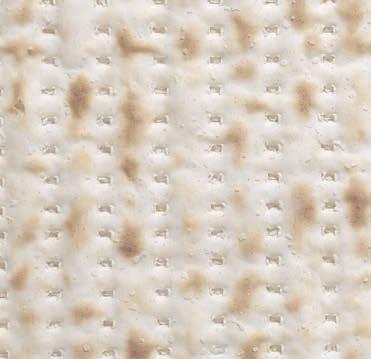
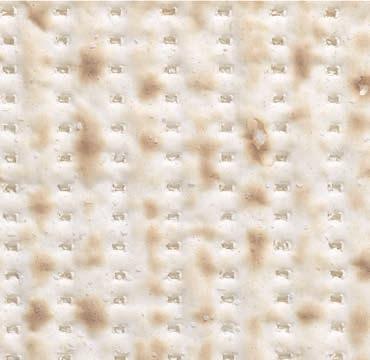
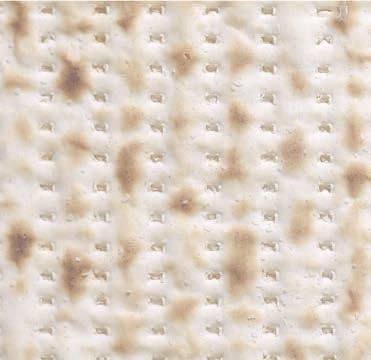
The return of Israel Defense Forces Sgt. 1st Class Zachary Baumel’s body for proper burial in Israel 37 years after his death was a poignant piece of positive news last week.
The Brooklyn-born tank commander was one of 21 Israeli soldiers killed in the Battle of Sultan Yacoub between Israel and Syria that took place in the Bekaa Valley during the First Lebanon War in June 1982. (Thirty other Israeli soldiers were injured.) Baumel was one of three casualties of that battle whose remains were never found.
Until now.
A two-year search called Operation Bittersweet Song that Israel conducted with Russian assistance led to the recovery of Baumel’s remains, which were flown to Israel via El Al and positively identified. The body was laid to rest April 4 in Jerusalem in Mount Herzl Military Cemetery.
“The IDF has undertaken significant intelligence and operational efforts to find the remains and bring them back,” IDF spokesman Lt. Col. Jonathan Conricus said. “Our efforts to locate the other missing-in-action soldiers continue.”
Reaching closure on the sad, and near-forgotten, Baumel story, and the respectful return of his remains has generated an emotional reaction within Jewish communities and among people of goodwill around the world. But nowhere is the reaction more intense and heartfelt than in Israel, where Prime Minister Benjamin Netanyahu called it “one of the most moving moments in all my years as prime minister” as well as a “repayment of a moral debt to the fallen soldiers of the IDF, a repayment of a moral debt to their families.”
The Baumel story is a reminder of what the state of Israel and its people have tragically lost in defense of their existence. And it is a testament to the unending commitment the IDF has to its soldiers and to the families of those brave military men and women who risk everything to serve and to defend the Jewish homeland. Members of the IDF know that they are respected and cherished by their government, and that they will be defended and protected by their government. They also know that the commitment to them will not end even if they are captured, injured or killed – or, like Baumel, missing in action for decades. That reality is an inspiring example of dedication, commitment and respect, and is clearly a promise that will not be broken.
While the return of Baumel’s remains has generated much interest and praise for the complex effort that made it possible, we (and, we are sure, IDF), can’t help but remember Sgt. Yehuda Katz and Sgt. Tzvika Feldman, who were involved in the same tank battle as Baumel, and whose fates are still unknown. We pray their whereabouts will be resolved soon, with the dignity and honor they deserve. JN
Letters must be 200 words or less and include the writer’s full name, address and phone number or email address. Letters are edited for content, style and space. Send your letters to Editor, Jewish News, 12701 N. Scottsdale Road., Suite 206, Scottsdale, AZ 85254; email letters@ jewishaz.com.
Measles — the childhood scourge that many believed was largely relegated to history — has made a significant resurgence both in Israel and in the United States. While there are pockets of concern around the country, much of the press concerning the troubling uptick in reports of the virus has focused on its presence in some haredi communities in the United States, particularly in Brooklyn and Rockland County, New York. Israel’s Health Ministry reported 4,000 cases of measles in 2018; a year earlier, there were 30 cases. And the Centers for Disease Control and Prevention reported 387 measles cases in the United States through March of this year — versus 372 in all of 2018. While these numbers are not large in the grand scheme of things, they are extraordinarily serious because of the large number of people who are being exposed to the virus in schools and other public places. The spread of the virus is tragic in every way, considering that all it takes to make the threat
disappear is a simple vaccine, available in abundance to all children here and abroad.
Along with the resurgence of measles comes the finger pointing, with two different narratives: Some assert that there is a small but powerful anti-vaccination line of thinking in some haredi communities that has led to the outbreak, which runs parallel to the “anti-vax” philosophy espoused nationwide by very committed anti-vaccination advocates, including some well-known celebrities, who rely on junk science and unsubstantiated claims that vaccinations cause autism and other maladies.
Others maintain that the affected communities are largely unsophisticated and uneducated, and that parental decisions to forgo vaccination have been driven by issues relating to convenience rather than by anti-vax dogma.
We have heard reports that a majority of haredi rabbis in affected communities have urged their congregants to vaccinate their children. In the Rockland County area, for

example, it has been reported that some 18,000 vaccinations have been administered in the last several months alone, and that there are signs in some area synagogues telling those who aren’t vaccinated that they aren’t welcome. Yet the outbreak continues, and is intensifying.
Whatever the reason for the outbreak, we need strong leadership within the affected communities to address and resolve it. Public health and safety is being threatened by a small group of either ignorant, irresponsible parents or stubborn anti-vaxxers (or both). If leadership in those communities fails to act, public health authorities and other law enforcement agencies will almost certainly step in. And the results will be messy. Vaccinations are safe, effective and necessary. They are not toxic. They do not cause autism. And they save lives. Those who refuse to vaccinate put their children and their communities at risk. They need to be stopped. There is very little room for compromise.
GETTY/MARIANVEJCIKWinning elections in Israel is somewhat elusive. It isn’t sufficient for a party to win the largest number of seats in the Knesset. No party in Israel’s history has won a majority of at least 61 seats required to rule by itself. The largest parties have always needed to build coalition governments in collaboration with other parties. Therefore, winning means first and foremost the ability to form a coalition and assemble a majority vote in the Knesset. Yet winning the largest number of seats is generally advantageous.
In Israel, the president has the authority to invite a Knesset member to form a coalition. After the results are finalized and declared legal, he consults with all the parties and asks them whom they recommend for the prime minister position. He adds up the recommendations and appoints the candidate who has the best chance to form a coalition government.
Usually, the largest party receives first this chance. In 2008, however, the Kadima party, under the leadership of Zipi Livni, won the largest number of seats, but Netanyahu, who was in second place, was able to establish a coalition and became prime minister. Thus, winning is more critical at the coalition-building level.
There have always been two major blocs of parties in Israel: left and right. Center parties emerged for the first time in 1977, and they collaborated with both the left
and the right. Occasionally, especially in time of national security or economic crisis, the two leading parties of the opposite camps established governments of national unity. The last government of this type served from 2009 to 2011, under the leadership of Netanyahu and Labor leader Ehud Barak.
In the 2019 elections, the right bloc headed by Netanyahu confronted a center-left bloc headed jointly by Beni Ganz, a former chief of staff, and Yair Lapid, a former prominent journalist, who served as a minster of the Treasury in a previous Netanyahu government. They and two other former chiefs of staff, Moshe Ya’alon and Gabi Ashkenazi, established Blue and White, a powerful new alliance of center parties.
The large and the small parties in the two blocs faced a major dilemma shared by many voters. Both Likud and Blue and White wanted to emerge as the largest party in the Knesset. But this could have been achieved mostly at the expense of the smaller parties in each of their respective camps.
A record of 42 parties participated in the 2019 elections, but only about a third won enough votes to enter the Knesset. The vote threshold is 3.25 percent of the total votes, equivalent to four seats in the Knesset. The polls showed several parties in both blocs scoring around
this threshold. The dilemma of the big parties was how to come on top as the largest party without losing the smaller parties in their blocs, which could have diminished their chance to establish a coalition government.
This dilemma had significant implications for the respective campaigns. Usually, the large parties attack each other, but since they wished to win as many seats as possible, they also had to compete with the smaller parties in their own camps. The smaller parties wanted the large party of their camp to win more seats than the rival large party, but at same time they had to fight for their own survival. Netanyahu partially solved this dilemma by moderating his campaign against the small parties in his right bloc, and by orchestrating a voting alliance between the extreme-right party Otzma Yehudit and the Jewish Home party. He was severely criticized for using this measure.
The smaller parties in the center-left bloc were more critical of the leading Blue and White. Labor, for example, appealed to voters by saying that Ganz and Lapid may join a new Netanyahu government, and therefore a vote for them could be a vote for another Netanyahu government, while they have promised not to do so under any circumstances. Similarly, many voters in
both camps didn’t know until the last minute whether to vote for a small party they like most or for the largest party in the camp thhat may have a better chance to form a coalition government.
Much of the election campaign was negative, sometime vicious and often personal. Netanyahu used his own online channel (Likud TV) and the social media to conduct an aggressive campaign against Ganz and sometimes against leaders of parties in his own bloc, like Naftali Bennet, the head of the New Right party. After the elections, however, the personal attacks are quickly forgotten and former rivals are happy to negotiate terms for building a coalition.
The exact makeup of the new government, the allocation of ministries and appointment of senior officials will take time. Negotiations with potential coalition partners, responding to their diverse and sometimes conflicting demands, and signing an agreement on joint political, social and economic agenda and legislation initiatives, are often complicated. Only after the establishment of the new coalition will we know where Israel will be heading in the next few years. JN
Professor Eytan Gilboa is director of the Center for International Communication at Bar-Ilan University in Israel, and currently serves as Israel Institute Visiting Professor at the Annenberg School for Communication, the University of Pennsylvania.
In recent years, the national conversation regarding identity and rights has brought a number of old myths about transgender individuals back to the forefront. From bathrooms to the military to high school proms, these myths continue to haunt the discussion, turning those who don’t fit a profile into fodder for debate. Misperceptions about health, motivation
and day-to-day life have pervaded initiatives to deny equitable opportunities to those who identify as transgender.
Over the 44 years I’ve been practicing medicine, we’ve seen a great deal of progress in policies that affect transgender people due to a cultural shift in understanding and empathy. But it has been shocking to see such a quick reversal that erroneously
and harmfully singles out the transgender community. There is little to no evidence supporting arguments about an increase in violence committed by transgender individuals or the undue burden on our military. In fact, by perpetuating negative myths, the environment has grown more dangerous for transgender people, with more than two dozen individuals killed
in each of the last two years (almost all of whom were people of color).
In my experience, there are at least five myths that have contributed to negative perceptions about transgender people: Myth No. 1: Transgender people are mentally ill. The American Medical
LEVITICUS 14:1-15:33
This week’s Parsha, Metzora, concludes the subject of tzaraat , which was introduced in last week’s reading.
Tzaraat are supernatural plagues that affected the homes, furniture and bodies of certain types of sinners. This phenomenon existed only when the Jews were on a high spiritual plane and the appearance of these unique afflictions might rouse the sinner to repent.
At present, we are no longer subject to these maladies. Still, the study of their nature and purpose provides very timely lessons.
Tzaraat is associated with significant sins — most prominently, that of lashon haarah (evil speech). Of course, no one is perfect and anyone can slip from time to time. In the normal course of things the transgressor should regret his action and do teshuva. If sincere, it will be accepted by G-d and life will go on.
However, not every sinner is open to repentance.
Many people assume an attitude of denial regarding their flaws. This is especially true in the matter of slander because the harm is not visible and so is more easily ignorable. The chronic slanderer
derives much emotional gratification from vilification of others and readily rationalizes his behavior.
In order for him to be helped, he must find himself in a position where he can no longer deflect his sinfulness. The purpose of tzaraat is to transform his spiritual blights into tangible manifestations of blotches on physical objects that are very dear to him, including his own skin.
When mysterious discolorations of no known origin make their appearance, the sinner is seized with anxiety and desperately seeks an explanation and a cure which can only be provided by the person designated by Hashem to be the teacher and moral guide of his Chosen People, the Kohen (Priest).
Only he is authorized to pronounce the symptoms as manifestations of tzaraat and thereby initiate the healing process. The Kohen will then work with the victim and assist him in the process of overcoming his defect and regaining a status of purity.
It may sound strange, but I believe we must view tzaraat as a profound expres-
sion of Divine mercy. Hashem displays great concern for the well-being not only of the righteous but of the sinner as well.
The biblical precedent for this can be seen in the encounter between Avraham and Avimelech. Avraham feared that the people of impaired sexual restraint would murder him in order to obtain his exceedingly beautiful wife, Sara. They therefore conspired to pretend that she was his sister.
When they entered his kingdom, Avimelech was informed of her beauty and she was brought to his palace. Hashem struck him and his entire household with painful plagues. He also visited Avimelech in a dream and instructed him to return Sara to Avraham and entreat that prophet to pray for him to be cured from his sickness.
The divine plagues were responsible for saving Sara and healing Avimelech. These turned out to be a blessing and illustrates the teaching that “the one whom G-d loves does He rebuke.”
There are many social institutions in Judaism that provide great intellectual and ethical benefits designed to ensure the spiritual health of the collective.
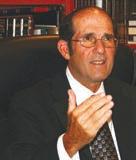
However, we may ask, what about those
who are not inspired to be part of the group and conform to its exacting moral standards? What about those who fall through the cracks and chart a prohibited course for themselves?
It might be tempting to write them off and exhort them to become worthy members of society and play by its rules. Does the recalcitrant slanderer deserve special personal assistance?
Parshat Metzora answers in the affirmative.
Hashem visits the transgressor with painful afflictions that are entirely for his benefit. Hashem arranges for him to have a personal relationship with his designated teacher, the Kohen. His task is to rehabilitate the sinner and restore him to a state of spiritual purity in order to become a valued member of Jewish society.
Tzaraat is truly an expression of Hashem’s infinite mercy for all of His creatures whether they are deserving or not. May we merit to emulate His ways. JN
Association and the American Psychiatric Association have recognized gender dysphoria as a medical condition, but not a disorder. Further, the degree of dysphoria varies, meaning the psychological distress varies as well. Yet because gender dysphoria can lead to severe health issues like depression, anxiety and suicidal ideation, the recommended course of treatment is living as transgender including the use of mental health support and the options of hormone therapy and surgery.
Myth No. 2: Transgender people are dangerous. Advocates of recent bathroom bills and the military ban have claimed them necessary to protect cis people from a transgender person waiting to harm them. But the data does not support this. The language of these policies also speaks to a deeper issue, with transgender individuals
allowed to still serve in the military and use gendered bathrooms according to their birth gender, thus denying their identity.
Myth No. 3: Gender identity and sexual orientation are linked. The definitions of gender identity and sexual orientation often get muddled, but the former is how one self-identifies and the latter who they are attracted to. Both gender and orientation exist on their own spectrum, meaning they are not necessarily related.
Myth No. 4: All transgender people medically transition. The desire and ability to transition differs across individuals. While some pursue hormone therapy and gender reassignment surgeries, others lack access to them or are barred by discrimination. Others have no interest in full genital surgery. The medical treatment for someone with gender dysphoria seeks to help people live as their true gender but it does not prescribe a particular course of action.
Myth No. 5: Transitioning is as simple as one surgery. For those who do opt to undergo gender reassignment surgery, the process is more involved than simply electing to proceed. Many will go through facial, chest and other procedures. Furthermore, in my practice, before moving forward with gender reassignment surgery, we require three steps from our patients to assess their readiness:
• Certification by two mental health specialists to confirm the diagnosis of gender dysphoria and to ensure the patient is emotionally stable
• Hormonal therapy for a minimum of one year prior to surgery
• Live and present full-time as their desired gender
Those who perpetuate these myths lose something by closing themselves off to others’ life experiences. Understanding the hurdles and victories of the transgender
community has helped me to be a more compassionate physician. I’ve been able to help an incredible number of transgender people feel more wholly themselves through surgical and nonsurgical procedures. We’re all stronger when everyone can reach their potential and participate, regardless of how they identify.
Rather than limiting a community, we should work toward ensuring rights and equity across the board. Mistaken beliefs are increasingly used to attack people’s humanity when most are seeking nothing more than to quietly go about their lives. Therefore, it falls to those of us who are able to help remove barriers so that cis and transgender people can live their lives to the fullest. JN
Shortly after white supremacists rallied in Charlottesville, Virginia, in August 2017, chanting “Jews will not replace us,” Steve Bannon’s time in the White House came to an end.
The former chairman of Donald Trump’s presidential campaign headed back into a world where he was free to pick his own political fights, rather than be beholden to the agenda of a single administration.
That’s where award-winning docu mentary filmmaker Alison Klayman, the director of Ai Weiwei: Never Sorry came in.

Klayman wanted to make a documentary about the mysterious Bannon, whose life had taken him from the Navy to Goldman Sachs to directing a movie starring Phil Robertson of Duck Dynasty
Over the year she spent with him for her new movie, The Brink , he endeavored to forge alliances among rightwing populists in Europe, elect Judge Roy Moore to the Senate, and advise GOP candidates in the 2018 midterm elections. Klayman’s camera is with him every step of the way, taking private jets and sitting in on meetings. What Klayman found was a man who, though he’s not as close to the levers
of power as he once was, has made an indelible impression on U.S. politics.
Why did you want to make a movie about Steve Bannon?
Because it was going to be an opportunity to see behind the curtain. Not only did it end up being the far right in the global sense, the fact of the matter is that he’s the mainstream of the Republican Party as well. And that’s an incredible opportunity to see what their strategies are, who their supporters are, who he’s working with.
It frankly was an opportunity to take on a really big figure like this and see what he was about. I didn’t have some personal fascination with him. This was
e Board and Staff of Jewish Free Loan mourn the passing of Jean Grossman.
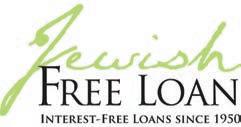
May her memory forever be a blessing and the Jean and Harold Grossman Jewish Day School Loan Fund be a lasting legacy for our community.
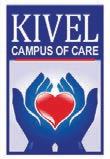
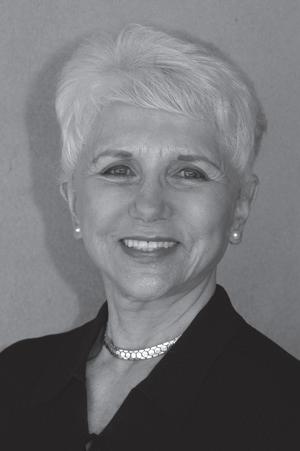
ank you for your generosity.
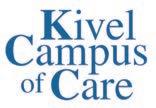
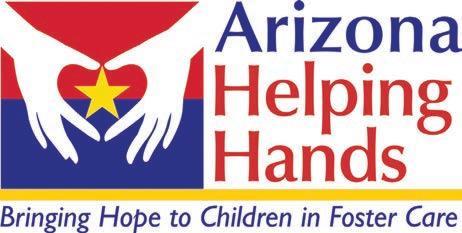
Generous supporter of children in foster care.
ank you for making our world a better place
an opportunity that was presented to me with that level of access, and the reason I immediately said yes was just because it was kind of like the real-world opportunity to document for history as well as expose for people today what in my mind is the banality of evil.
And what you learned is it’s mostly about downing Red Bulls and quoting Gramsci, as Bannon does in the film.
(Laughs) Yeah, right? What was also great is that I genuinely didn’t know what he was going to be like at all, so in that sense everything was a surprise, even though by the end I could finish his sentences, straight up. Because his stump speech is basically just, like, trying out a bunch of emotionally evocative lines to see what sticks, and he has a greatest hits.
And, as more time went on, I realized, this is really just playing cultural identity politics. This is a lot of selling of ideas, trying to get people on your side, though the ideas themselves felt pretty thin, and they all centered around deregulation and a cruel and xenophobic migration policy and immigration policy for the West.

Bannon says there’s no one who understands Trump the way he does. Obviously, he’s prone to some degree of self-aggrandizement, but there does some to be some truth to what he’s saying.
Bannon has a really good emotional intelligence, but I don’t know if that’s how he’s charming people. He’s actually very, very good one-on-one. So through that, maybe, you can imagine that he is a little more sophisticated than some of the other people in Trump’s orbit. He was always incredibly politic, and careful to never say anything bad about Trump in front of me or in front of the camera, which always to me felt very deliberate and not always factual.
Because he had a lot of frustration, that’s part of why he left the White House. It was frustrating that he wasn’t able to exert more influence. Once he was there, there were other people in the administration and he wasn’t the top dog, so Bannon has more insights than some of these other guys into Trump.
But Bannon, too, is a lone wolf. Maybe that’s not the right word, but he does come off as rather a solitary figure, ultimately.
It’s more like he needs to be — he would bristle at having a boss. And

Trump’s also someone who’s used to getting his way. When he’s like, “He’s not your friend,” I wondered if he knows that because — I read more animosity into that than just understanding Trump.

Bannon seems to believe that all press coverage is good for him. And even when it appears that he’s getting the screws turned on him whether on Piers Morgan’s show, or in an interview with The Guardian he still seems to regard those as victories. How did that attitude affect your understanding of his relationship with the media, and do you think he sees this movie as a victory for himself?
I don’t think he sees this movie as a victory. This was something that really, really concerned me, and I’ve thought about every day, the question of, how do you cover someone like this? You can see why he is so close to power. When he talks about using the mainstream media — I mean, I put that in there because I was like, let’s be having these conversations.
Documentary is different than journalism, and what he’s talking about is being able to dominate the news cycle, to kind of have the stories framed in the way that he puts them out there to the reporters. ... When it comes to documentary, it’s a different project. It’s not about, you just have to keep up with the cycles, you just have to get a new quote. It’s about holding someone accountable and watching them for a long time to hold up their actions against their rhetoric.JN
She will be missed.
Jean Grossman was a life-long supporter of Federation and The J. She was a true philanthropist and pillar in our Jewish community.
The impact she and her late husband Harold Grossman, z"l, made on our community has been, and will continue to be, felt in so many ways, by so many generations for years to come.
May her memory be for a blessing.
Baruch Dayan EmetAlison Klayman, director of The Brink PHOTO COURTESY OF MAGNOLIA PICTURES
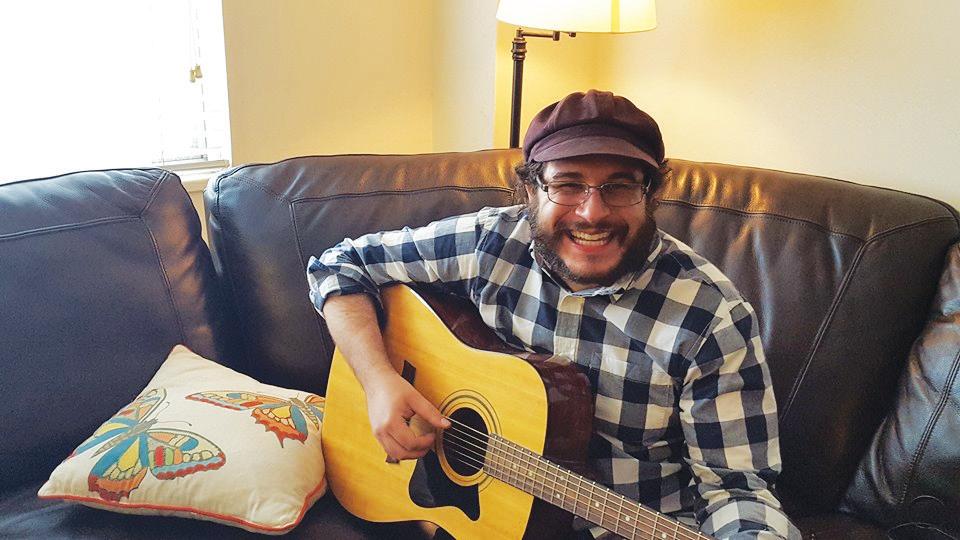
Winter may feel like it’s never coming to Phoenix, but dedicated TV viewers can see it come to HBO by watching the final season of “Game of Thrones,” which starts Sunday, April 14. Superfan AJ Frost, for one, can’t wait.
“‘Game of Thrones’ is a singular entertainment experience,” said Frost, 30, the director of operations for Valley Beit Midrash. “It’s not just a fantasy show, but a masterful drama, soap opera, war film and cultural commentary all crammed into hour-long action-packed episodes.”
Based on the fantasy novel series “A Song of Ice and Fire” by George R.R. Martin and created by two Jewish showrunners, “Game of Thrones” has become one of HBO’s most popular shows and has breathed new life into the book series. The most recent trailer for season eight broke viewership records; it was viewed more than 81 million times in just 24 hours.
Frost and several former residents of
Moishe House and other young Jewish professional groups, such as NowGen, are preparing for their return to the land of Westeros with a weekly viewing party for all six of the final episodes.
Right before season seven, a number of small Jewish viewing groups across the Valley coalesced into one larger viewing party, thanks to the connecting power of Facebook. Frost jokingly calls the group the Nerd Jew Crew.
Group member Scott Lorsch, 26, president of the real estate company Perfect Dimensions, said that the main group is around 10 people, but there can be more, depending on the night. One time, he remembers, there were 40 viewers huddled around a TV. Lorsch said “Game of Thrones” is great for group watching.
“When something happens, we all get excited at the same time,” Lorsch said. “Not every show gives that feeling. We watched ‘Rick and Morty’ and ‘John Oliver’ after sometimes and you
wouldn’t have the same group participation you would with ‘Game of Thrones.’”
a complex narrative that spans so many seasons and years, everyone in the group has their own favorite moments from the series and theories about where the show is headed.
manager for the communica tions infrastructure company Crown Castle, not only loves the show, but is a big fan of the books as well. Although there are several differences between the show and the original source material, Taubman appreciates how the show has elevated the fantasy genre.
“It does not shy away from the terrors that people inflict upon one another, the abject horror of battles that follow speeches of glory, or the necessity of fighting some of these battles,” Taubman said. “In an intensely human and character-driven story, it shows the highest morals and lowest depravities, along with everything in between. It may be fantasy, but its success is in how it captures so many realities of the human experience.”
Of course, as with any show with such a loyal and large fan following, there is the dreaded fear of spoilers for group members who might have to miss a particular episode. Lorsch said that the group takes spoilers very seriously, and if somebody misses an episode, it’s up to them to inform everyone else that they missed it.
Taubman suggests that a person who’s missed an episode might want to avoid their phone for a little bit, so they don’t get the group messages. Group chats are just one of the ways the crew keeps in contact and shares theories, reactions and plans for who will host the next episode.
The first host for the final season is
23-year-old Jonathan Zur, a project engineer for Honeywell Aerospace, who will provide some “Game of Thrones”themed beer from Brewery Ommegang.

While “Game of Thrones” is the hot ticket right now, the group has seen other shows and movies together, like the recent Marvel Cinematic Universe films. They re-watched all the Marvel movies in preparation for “Avengers: Infinity War” and most of them already have tickets for the highly anticipated “Avengers: Endgame.”
As “Game of Thrones” draws to a close, the group considers what they’ll watch next. Thankfully, there is no shortage of geek culture to get immersed in -- and no shortage of Jewish fans to get excited about it.
But Frost will miss the “Game of Thrones” experience once it’s over.
“There’s something magical about watching it week to week, and with people who speculate on every little detail,” he said. “It really creates a community.” JN
Who Wants to Be a Jewish Writer?
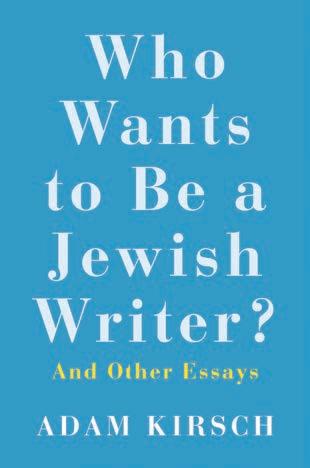


 Adam Kirsch Yale University Press
Adam Kirsch Yale University Press
for American Jews: Their relationship to Judaism is of an “elusive and perspectival quality.”



Jewish writers in a secular world wish to “transcend” their Jewishness, to be considered simply writers. But there are lots of people who don’t want Jews to live or practice Judaism, he writes. “We don’t escape that danger,” he said, “by clamoring to eliminate ourselves.”


Kirsch interrogates some basic assumptions of the American Jewish mainstream with love and with firmness. And you don’t need to be a Jewish writer to try and understand what he’s saying.
Taffy Brodesser-Akner
Random House
back to her via snarled text and email is a cause for cheering. He will no longer be made the wife in this divorce, as his lawyer tells him he is.
It is, of course not so simple, and Brodesser-Akner, who writes enormously popular profiles for The New York Times Magazine, approaches her characters in the same way she approaches her subjects at her day job: She doesn’t allow them to present themselves on their own terms indefinitely.
Though much of the story is told from Fleishman’s point of view, there are increasingly frequent interventions from his friend Libby Epstein, a former men’s magazine writer. It is through Epstein that the more self-serving aspects of Toby’s storytelling are cast in a new
light. Surprise! Toby’s victimhood is often of his own making.
It seems such an obvious lesson: There’s another side to this story! And yet, by withholding Rachel’s full account, Brodesser-Akner implicates the reader in Toby’s cruelty. It’s a story about the use and misuse of stories, the way that they mutate into grotesquerie or sunshine-y bliss, whichever is more suited to our conception of ourselves.
Brodesser-Akner is a terrifically funny writer — here and there, she drops in empowerment-slogan yoga tank tops that become funnier with each repetition (Namaste in Bed!) — and one can only hope that she never gets the chance to lift a boulder and look at the creepy-crawlies of your life in the pages of the Times. JN
The problem with Jewish writers, Adam Kirsch writes, is that even the best of them detest the label.
Philip Roth famously resisted being categorized as such, as did Saul Bellow, Lionel Trilling and two unnamed novelists whom Kirsch moderates a discussion between at the beginning of his new collection Who Wants to Be a Jewish Writer? Why accept a label, as Kirsch characterizes their arguments, that seems to “imply that one loves, hates, and so on in a different way from people who are not Jewish”?
Kirsch, who is quite clearly a Jewish writer, does not accept the premise. To be a Jewish writer, he says in the opening essay of his new collection, is to write with moral seriousness and particularity, the kind that seems so accessible to the James Joyces and William Faulkners of the world. Those two were “describing a particular way of life with great specificity that they could make it meaningful, even to people who led very different lives.”
The problem for American Jewish writers, Kirsch theorizes, is the same as
“T oby Fleishman,” begins Taffy Brodesser-Akner’s debut novel, Fleishman Is In Trouble, “awoke one morning inside the city he’d lived in all his adult life and which was suddenly somehow crawling with women who wanted him.”
Fleishman, like Kafka’s Gregor Samsa, is inexplicably in a new world after awakening from strange dreams; namely, the dissolution of his marriage, which seems more distant by the day. Armed with a quick and dirty dating app and his newfound freedom, Fleishman’s New York is transformed.
Fleishman, henpecked doctor, selfdoubting dieter, loving father and the aggrieved party in his divorce, is a new man. As he settles into this new world, the long and torturous history of his marriage to Rachel is drawn out detail by icky detail, and a picture emerges — haughty breadwinner, social climber, barely present mother and frigid, nasty wife.
When Toby awakes on a different morning to find that his soon-tobe-ex-wife has dropped their kids at his apartment without warning, and cannot be reached through any form of communication for weeks, this picture only comes more clearly into focus, and Toby’s newfound ability to direct cruelty
 BY ELIZABETH KRATZ | JNS.ORG
BY ELIZABETH KRATZ | JNS.ORG
While leafy greens contain essential vitamins, minerals and dietary fiber, they are particularly susceptible to infestation. Unwashed greens commonly house tiny insects such as aphids, thrips, leafminers and cabbage worms. Checking salad greens for these charming creepy crawlies takes a lot of time for many kosherkeepers, and still others might decide to skip the salad altogether, deciding that intensive washing and checking simply isn’t worth the effort.
While an array of triple-washed or greenhouse-grown salads has become available in kosher stores locally over the past several years, they have generally been limited to very basic lettuce blends, and have varied in quality and freshness.
“Until recently, kosher observant Jews haven’t had the opportunity to eat many different produce types because of infestation. As our technique and technology improve we hope to be able to offer every kind of crop for kosher consumers to enjoy,” said Israel Ellen, owner of a new company now releasing ultra-washed greens in the New Jersey region under his label Kosher Crops. Something that sets Kosher Crops apart is that the product received in the store is fresher than anything else currently available with a rabbinic certification, or hechsher.
“This is a great new line of high-quality, pre-checked lettuce,” said Dani Secemski, owner and manager of Glatt Express in Teaneck, N.J. “It’s been selling great so far, and our customers love it.”
A manager at another local Teaneck store, Cedar Market, Oscar Cuevas also noted that the freshness is what sets apart this new product. “It comes into the store the day after it’s been washed, so it’s a very fresh product compared to other brands.
We hope our customers will try it and see the difference,” he said, noting that Cedar Market is selling the entire Kosher Crops line except for kale, which they will offer if customers request it.
Ellen, a businessman and Montreal native now based in Pennsylvania, started
out just wanting a nice salad. “We didn’t have any kosher salad available to us: no Bodek, no Positiv, no Kosher Gardens, we didn’t even have Fresh Express,” he said. “So I got a Keystone-K [Community Kashrus of Greater Philadelphia] hechsher and pitched the product to a local Acme store. Once they approved the product, I hired a mashgiach [‘kosher supervisor’] and a packer, and we started selling 80 boxes of lettuce a week. Shortly after that, we got listed in ShopRite and then House of Kosher.”
Under the Keystone K in Philly, he is providing bok choy, broccoli, cauliflower and other greens like watercress, baby arugula, baby spinach and kale, in addition to romaine stalks and mixed salad greens. “But to sell nationally, you need a Star-K, which is the most thorough and machmir
[‘strict’] hechsher for bug-checking by far. So I applied for the hechsher. The process was arduous, but Rabbi Sholom Tendler and Rabbi Dovid Stern both helped us improve our techniques and taught us how
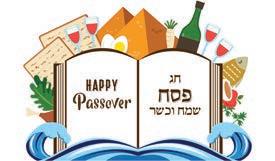

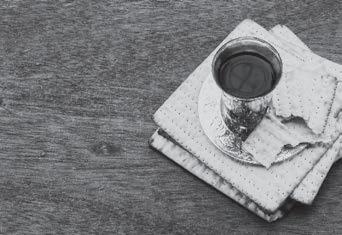
“Star-K requires all produce to be thoroughly washed and checked to make sure not even one insect is found. The method we use is known as the ‘thrip cloth’ method, which is widely considered the most effective way to check produce,”
“We source the produce from a variety of farms: some greenhouse, some hydroponic and some organic. It really depends on quality. Interestingly, at different times of the year, different farms produce better
crops,” explained Ellen. “Because we wash and we don’t grow, we’re able to source the absolute best produce available.”

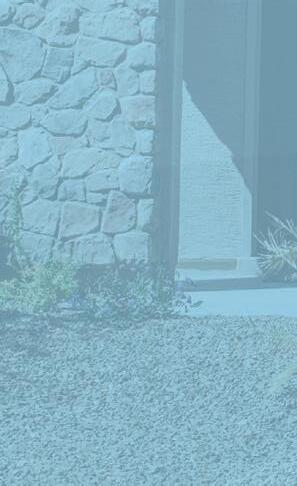
Kosher Crops uses sophisticated drying techniques and tamper-evident packaging to ensure crispness and extend shelf life, promising that salads remain fresh for seven days past the date printed on the package. While some Kosher Crops products are not yet available under the Star-K, Ellen is working to provide as much variety as is allowable under each hechsher.
Future plans for Kosher Crops include hechshered super-green blends with spinach, arugula or spring mix to serve as bases for high protein, non-animal based prepared salads.

“We’d like to be able to offer healthy grab-and-go meals that are fresh, filling and good for you. The days of having to buy ‘salad’ that is basically iceberg [lettuce] in a vacuum-sealed bag are finally over,” said Ellen.
He is also looking into producing a line of fresh vegetable juices, and is hoping to

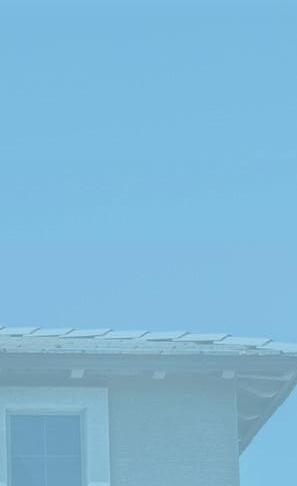
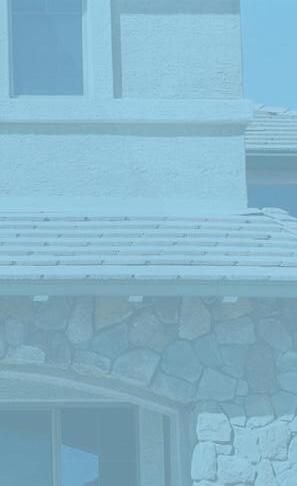
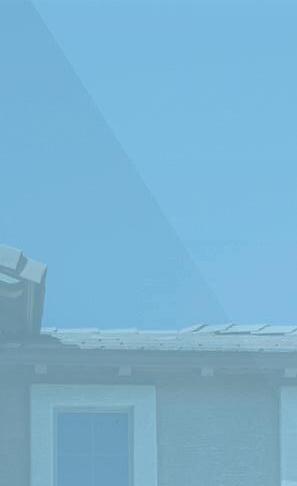

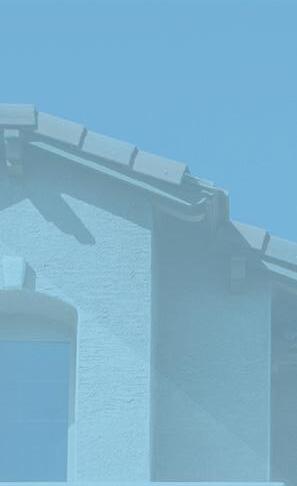
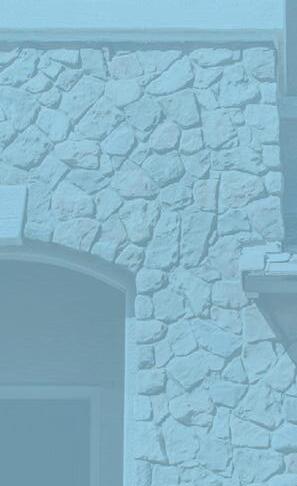
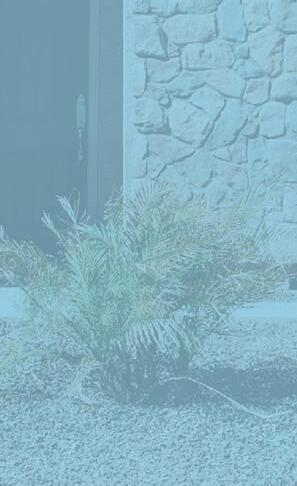
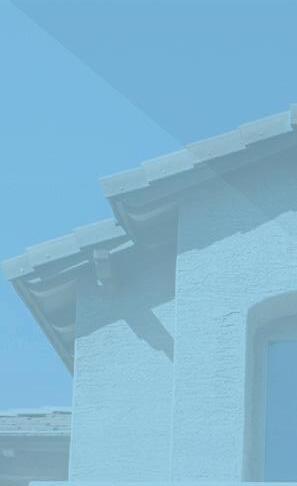
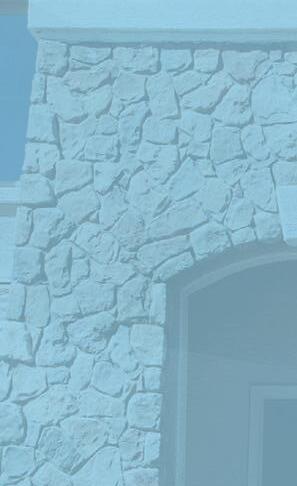





After securing the Star-K, Ellen headed to Teaneck and Passaic, N.J., to pitch his products. Kosher Crops products are now available in every kosher grocery store, including Seasons, Glatt Express and Cedar Market. “We’re now selling just under 1,000 boxes a week. Each five- to seven-ounce box of produce costs $5.99 to $6.99, and has a shelf life of seven days. “We hope to launch in stores in Baltimore and service more ShopRite stores in New Jersey. We’re also in talks to get other hechsherim so we can sell in New York City; Monsey, N.Y.; and the Williamsburg” neighborhood of Brooklyn, N.Y.
Ellen’s background in business has made him confident that he can make his new salad endeavor a success. He owned a company in Montreal called Achoo Tissue, which did private labeling of hygienic products mostly for pharmaceutical companies in Canada and the United States. “When I sold that business in 2007, we were one of the largest private label hygienic companies in Canada. After that, my wife and I moved to Israel. We were fortunate to be able to live there and learn full-time for 10 years before moving
to Philadelphia so we could be close to her family,” he explained.
Launching Kosher Crops was a chesed project for Ellen, as his primary work is now in real estate. But as the salad business is growing outside the region, it’s starting to take more of his time.
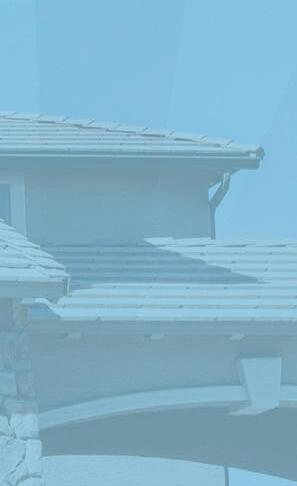
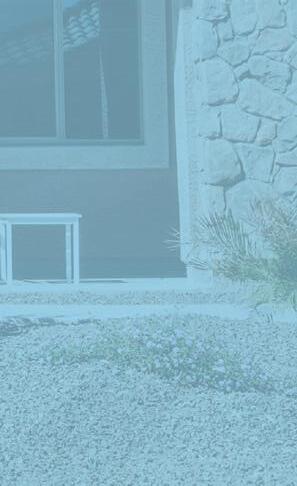
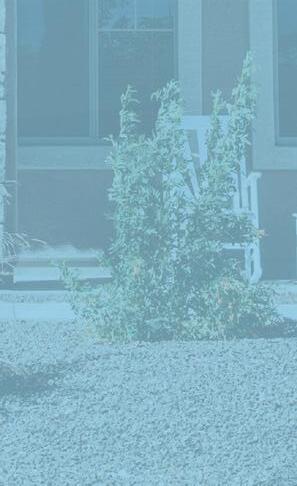
“I also wanted to create opportunities for Jewish community members who need jobs,” he added. “This week we washed just under 300 pounds of produce. At our current rate of growth, we hope to be at 600 pounds per week by mid-March, and then we’ll be focused on Pesach. There’s a lot of competition at that time, including imports and pop-up washing businesses, for romaine. Our goal isn’t to be the biggest; our goal is to provide the freshest and cleanest produce.”
Adina Shmidman of Bala Cynwyd, Pa., the Orthodox Union’s director of women’s initiatives, is pleased with the produce and happy that Ellen has entered the kosher marketplace. “Supporting a local Jewish startup, no bug-related worries and ease of function, it’s a win all-around,” she told JNS. “As a kosher consumer, I’m exceptionally grateful.”JN
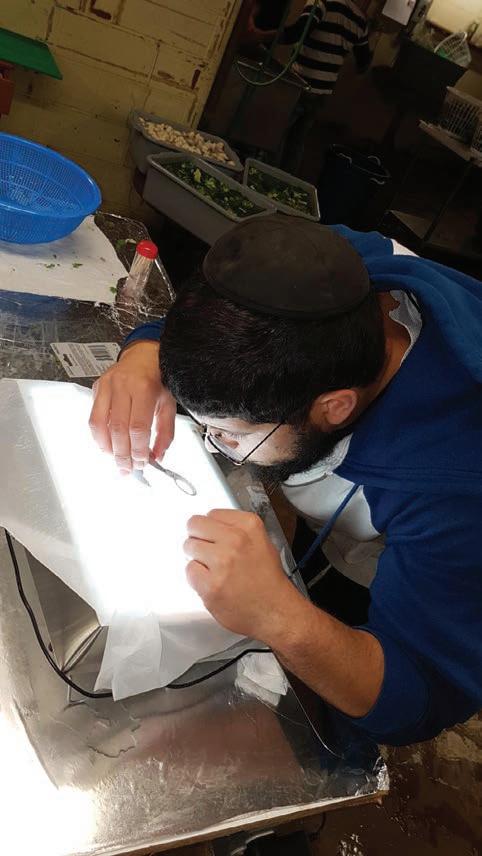

When food-industry insiders entered the Meadowlands Exposition Center in Secaucus, New Jersey, for the annual Kosherfest trade show back in November, you could almost understand why their thoughts were on Passover. Displays of matzah boxes and even samples of different brands of the Passover mainstay were all over the exhibit hall. Plus, there was “Sam the Dancing Matzo Man” — a 6-foot-tall mannequin that greeted attendees.
The two-day Kosherfest is the destination for supermarket buyers, chefs, hoteliers, food bloggers and manufacturers to showcase, sample and order the hottest
kosher foods on the market. While many vendors are local, the festival features an international section with companies from Australia, Czech Republic, Sri Lanka and, of course, Israel.
Among those in attendance was Danielle Simpson, who works for Big Y Foods, a chain of supermarkets in Massachusetts and Connecticut. She noted that there’s been a growing demand in some of the chains’ outlets for more kosher food, so she was searching for some new bakery items.
“I didn’t realize everything that was available,” Simpson said, as she rushed from one booth to the next.
On behalf of the Israeli American Council in Arizona (IAC Arizona) we extend our deepest sympathy to the family of Jean Grossman ל˝ז. Jean was a close friend and we spent many happy hours together in her living room. She supported and believed in the IAC while we were still in infancy, and that belief warmed our hearts and helped us launch many successful programs.

Jean, your love of your family, Israel and Judaism is unequaled…

Your generosity, both spiritual and financial, is deserving of our deepest thanks.
You and your beautiful neshama will be sorely missed…
Susan Bondy Chairman of the Israeli American Council of AZ on behalf of our communityOne item that may have caught her eye was the Manischewitz “Modena,” which features a layer of chocolate between two cookies.
“Last year I walked the aisles of the stores, and I was seeing more and more baked goods for Passover,” said Shani Seidman, director of marketing at Manischewitz. “When we thought about expanding our bakery line, we wanted to make sure everything tasted amazing. Just because it’s for Passover doesn’t mean it should taste bad.”

The company will also offer some new flavors for macaroon fans looking to shake up their post-seder snacking. And under
their “Mishpacha” brand, the company will sell a kosher-for-Passover instant cappuccino mix and no-sugar hot cocoa mix. Also out this year will be almond butter for easy matzah sandwiches.
According to the 2017 “Kosher Food Market” survey by marketing firm Lubicom, which puts on the Kosherfest trade show, consumers are expected to shell out some $1.5 billion dollars for items for the eight-day holiday.


Among those taking home a share of that pie is Oxygen Imports, whose dateand-orange marinade won the 2018 New Product Award in the Kosher for Passover category.
“Having a winner at Kosherfest means a lot,” said Ron Biala, Oxygen’s CEO. On the wholesale market level, he said, the buzz from winning brings in potential buyers at the industry gathering. Thanks to labels that indicate the item is a Kosherfest winner, such word-of-mouth continues at the retail level as well.
“This makes it more noticeable on the supermarket shelves,” said Biala. “Customers appreciate a product that was declared a winner.”
Hoping to break into the larger U.S. market is French company Rosinski Matzoth, a family-owned business that has been making matzah in the same factory just outside of Paris since 1929. They still use a baking technique created by company co-founder Albert Moskovitch, according to his granddaughter and company spokeswoman Laura Lallouette. Breaking into the kosher food market in the United States motivated Rosinski Matzoth to acquire additional kosher certification.
Rosinki’s matzah has been long-certified as kosher by local rabbis and recently obtained additional certification from the U.S.-based Star-K, a kashrut company whose logo is more recognizable to American consumers. The decision, said Lallouette, who represented the company at the booth with her father, Dominque, was in response to requests from stateside shoppers.
“It made a difference because we’ve been selling in the United States for two years now. We started distributing in Florida, and we are hoping to spread to New York and California this season,” said Lallouette. “It allowed us to develop our cross-border distribution, expanding our brand outside Europe. It is also a real pride to have our matzah reach tables all over the world.”
She continued, saying “I wish my grandfather could see it today. Before we were just in Paris, now we’ve grown in France, Europe, Israel, Morocco and Canada. I’m just so proud.”
But Kosherfest wasn’t just about food. Several vendors showcased novelty items designed for Passover, among them Shulsinger Judaica/Rite Lite, whose line includes 10-plagues nail decals, temporary tattoos, games and silicone Passover spatulas.
New for Passover 2019 are a matzahthemed necktie and returning “Pesocks,” or socks that come in three designs — blue and green with frogs, a brownish/
gray pair that says “Lotza Matzah” on it and another blue sock — this time paired with orange that says “Pass Over” in Yiddish-looking lettering.
“Nowadays, socks are a stylish venue for people to express themselves, so what better way to commemorate Pesach?” said Naftoli Versch, a spokesperson for Shulsinger Judaica.
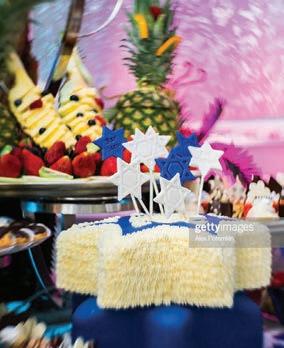

Then there’s a stuffed doll named “Sam the Dancing Matzo Man.” Created by Eli Kowalski of ToyVey Toys, Sam the was awarded a 2017 Top Toy of the Year Award from Creative Child’s magazine. Thanks to a licensing deal with Streit’s matzah company, Sam’s image will appear on some 1.5 million boxes of matzah this year, and special “Streit’s” logo-themed dolls are available through a website of the same name.
“It took us a year-and-a-half to get the licensing rights from Streit’s,” said Kowalski, who is also a children’s writer. In fact, he explained, it was precisely while marketing his children’s books that he realized “there isn’t much out there with Jewish content” and set out to create stuffed characters Jewish children can appreciate.
Ironically, one of the products with a clearly Passover sounding name isn’t actually good for eight-day holiday. The Matzo Project is a year-round treat, according to company co-owner Kevin Rodriguez.

His partner, Ashley Albert, came up with the initial concept. Among its offerings are a matzah-ball soup mix; matzah chips in flavors like cinnamon-sugar and seeded everything; a matzah-chocolatecoconut-toffee snack creation called the “Ungapotchkes” (Yiddish for over-thetop); and, yes, matzah.
The company’s hallmark navy-blue packaging features an irreverent-looking bubby on them, though her appearance wasn’t always guaranteed.
“We were both very close to our grandparents, so this voice was important. Initially, bubby was just on the corner,” relates Rodriguez, “but as we kept going that was the voice we knew people would connect to,” and so she took a larger role in the packaging.”
Rodriguez went on to explain that “matzah is a commodity. You can take something that people are familiar with and make it exciting. Especially for people who aren’t observant this gives them a way to connect with their heritage in their daily life.” JN
Comic books may be known for superheroes and genre fiction, but former DC Comics editor Jordan Gorfinkel is working to prove that the medium can also tell some of the most powerful stories in the Torah with his “The Passover Haggadah Graphic Novel.”
Published by Koren Publishers, “The Passover Haggadah Graphic Novel” touts itself as the first graphic novel to tell the linear story of Passover.
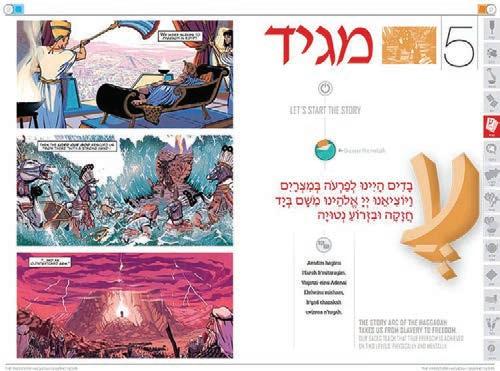
“Adapting the non-linear Passover Haggadah story into a comic book was a great challenge for my career,” Gorfinkel said. “I wanted it to be authentic and true to the Haggadah.”
Working more as an editor than a writer, Gorfinkel adapted the Haggadah by using a translated version of the text from David Olivestone of Teaneck, New Jersey, a former Orthodox Union official who translated the text for the NCSY Haggadah.
Although there have been other illustrated Haggadot, Gorfinkel’s version is the first to use sequential art as a means to adapt the stories and lessons of the Haggadah. Gorfinkel has extensive experience in the comic book industry through his work with DC Comics. Specifically, he worked on the Batman and Birds of Prey comic series in the mid-’90s.
Gorfinkle said the idea for the Haggadah came to him after he and another Jewish editor at DC wondered why nobody had ever created a work like the “The Passover Haggadah Graphic Novel.”
After leaving DC Comics, Gorfinkel took up residence in Cleveland to work
in several freelance positions and taught cartooning classes at local synagogues and Jewish camps. He also used the time to launch his own website, jewishcartoon. com, where he posts a weekly Jewish comic strip called “Everything’s Relative.”
During that time, he also started research for the Haggadah graphic novel, as well as looking for the right artist.
The images that accompany the words were conceived and planned by Gorfinkel himself and he used some interesting choices to help tell the story. For example, there is an omniscient talking goat that acts as the narrator.
Drawn by Israeli artist Erez Zadok, the graphic novel features a dynamic artistic style that displays some of the most wellknown scenes from Exodus. Gorfinkel
described the artwork as similar to that of a Marvel superhero comic. He said the art should be grand and inviting to its readers.
Zadok is a graduate of Bezalel Academy of Art in Jerusalem. Gorfinkel wanted to have an Israeli artist to draw the graphic novel because, “if you get an Israeli artist and call for an exterior of Bnei Brak or Jerusalem, all he has to do is walk outside. He’s living the history.”
Gorfinkel said the graphic novel took years to make and fund. Its release was made possible with the help of different crowdfunding campaigns and donors.
One of those donors is Valley resident and comic book reviewer for the website comicsbeat.com, AJ Frost. He said the graphic novel is a blessing to have and he plans on using it as his main Haggadah for future Seder dinners. The graphic novel was released in January and is available through retailers and online markets.
One of the perks of giving a certain amount of money to the campaign was to have Zadok draw the donor into the book. Frost and his late father, Robert, make an appearance.
“Ever since my dad passed away several years ago, I’ve tried to honor his legacy through tzedekah and good deeds in his memory,” said Frost, who also serves at as
Ihave been to more than a dozen Passover seders. I know the Four Questions by heart. Neither of these facts might seem so surprising, but — as most people I’ve interviewed for these pages already know — I’m not Jewish. So my level of knowledge is somewhat surprising.
It all started back in preschool. My mother raised me as a Greek Orthodox Christian and my father was Catholic. Although we went to Sunday mass and celebrated both Christmas and Orthodox Easter in my native San Francisco, we weren’t particularly religious.
In fact, my folks had no problem sending me to the Jewish Community Center of the East Bay, Berkeley Branch, for preschool. Mom chose the Jewish preschool because she hated the music that all the Christian preschools played. She said, “It was one bad guitar song
senior director of operations and assistant to the president and dean of Valley Beit Midrash. “I, of course, thought having my Pop in the Haggadah would mean that there would be a representation of him in a work that will hopefully be around for decades.”
For him, the “Passover Haggadah Graphic Novel” is a functional ritual object and a different comic book experience.
The strength of the book is that it truly does act like a Haggadah. The right side of the book contains the Haggadah’s Hebrew text. On the left side is the comic book format with the English translations in word balloons.
“There are thousands of variations of the Haggadah throughout the centuries, but this is the first to meld the structure of comics to the structure of the Seder,” Frost said. “It brings an interest to those who are tired of the run-of-the-mill Haggadah while being an enjoyable way to interact with the holiday.”
Frost explained that as the language and interest in the graphic novel media grows with each passing year, “the need to create unique and singular pieces of art that stand out is imperative.”
Frost gave the book his highest recommendation and hopes that it’ll be around for a long time to come. As for Gorfinkel, he hopes to keep adapting more Jewish stories in the sequential art format.
“I want to do Jewish history,” Gorfinkel said, “telling the stories of Zionism and great and inspiring Jews, to inspire the Jewish people.” JN
after another, but when I went to the Jewish school, I heard the students sing a hauntingly beautiful song and I loved it.”
At preschool I found myself getting very involved with Jewish traditions and
CONTINUED FROM PAGE 14 culture. I still have one of the menorahs I crafted by hand: a green painted wood shingle with glued-on hardware to serve as candleholders. I also acted in the school’s stage adaptation of Moses’ journey — in the illustrious role of Hopping Frog No. Seven on the Left.
I was 26 (and definitely not the youngest at the table), I was still expected to read the questions because it has become a tradition.
As a child, I didn’t entirely understand why I was such a focus of activity. It seemed unusual for a small child to have such a prominent role in a religious observance; as an Orthodox Christian,
While much of my memory of that time is scarce, I do have flashes of singing songs like “Dayenu,” eating matzah and jumping up and down in a green leotard.

It was at preschool that I got my first exposure to the Four Questions, when we read them out loud together. We learned why that night was different than all other nights, why we didn’t eat leavened bread and why we dipped twice.
After preschool and just before kindergarten, my dad got a new job in Chicago and we moved to the northern suburb of Winnetka. The only people we knew were Jewish family friends who lived near our new home.
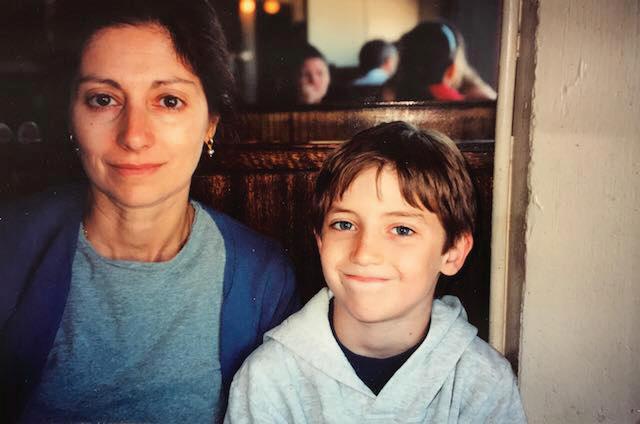
They welcomed us with open arms and invited us to their home for every occasion. They hosted Thanksgivings, Fourth of July celebrations, random dinners and, of course, High Holiday meals and their very memorable Passover seders, which we attended every year.
At those dinners, I read the Four Questions from the Haggadah since I was always the youngest. I read them every year for a decade, despite the fact that I hated reading out loud. Even at the most recent Passover I attended at their house, when
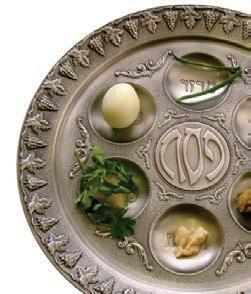
my only responsibilities were to unwrap presents at Christmas, crack red eggs at Easter and stay out of the kitchen when my mom was cooking any holiday meal.
A Passover seder felt more like a play, with everyone, even the smallest person, taking on an important part for the evening. I think that’s why my family liked going to Passover seders. We weren’t just expected to be guests. We were encouraged to be participants in sharing a very important story.
I do find it slightly ironic that I spent my childhood being encouraged to ask questions and now that’s how I make my living, as a reporter. And for a Jewish newspaper, no less.
Passover is just a week away, and as a fairly recent transplant, I’m still getting used to Phoenix’s unforgiving summers and endless skies. It’s all been new for me and my girlfriend — having to make a different city and state home despite the fact that we didn’t know anybody when we got here. But as I work on the stories for these Passover issues, I am reminded of those cherished memories at the seder table. And it feels just a little bit more like home. JN
e Board of Directors and Sta of the Jewish Community Foundation join the entire community in mourning the loss of Jean Grossman

a woman of valor, whose legacy will live on through her generosity and commitment to ensuring a strong and vibrant Jewish community for future generations. Jean, and her husband Harold, z”l, worked to strengthen our ability to serve those in need, making a signi cant impact on our community through their generosity and spirit.
“We deeply believe that the ethics, principles, tenets, teachings, traditions and culture of Judaism are of in nite value to the Jews, the world and to us as individuals. We feel that, as Jews, it is our responsibility to do our share to assure the survival of the Jewish people and the continuity of Judaism for all time to come.”
We extend our deepest condolences to the family of Jean Grossman. May the family of be comforted among the mourners of Zion and Jerusalem and may her name forever be a blessing.
APRIL 15
Caring for our Loved Ones: A Jewish Support and Resource Group for Families and Caregivers: 7 p.m., Temple Chai, 4645 E. Marilyn Road, Phoenix. No charge, but donations welcome.
APRIL 16, 23 AND 30
Hope for Today: 3:30-4:30 p.m., Temple Chai, 4645 E. Marilyn Road, Phoenix. Spiritual program of recovery for those who suffer from the debilitating effects of chronic pain and chronic illness, based on the 12 Steps of AA. Contact: cpa-az@cox.net. No charge.
SUNDAY, APRIL 14
Israeli Movie Series: 3 p.m., East Valley JCC, 908 N. Alma School Road, Chandler. “In Her Footsteps.” Free, donation appreciated. Reservations: 480-897-0588 or info@evjcc.org
Ladles of Love: 9 a.m.-noon, East Valley JCC, 908 N. Alma School Road, Chandler. Volunteers prepare kosher meals to deliver to homebound individuals. Drivers also needed. To sign up, visit bit.ly/Ladles2018.
Israeli dancing class: 12:30-2:45 p.m., East Valley JCC, 908 N. Alma School Road, Chandler. The class, taught by Jason and Elaine Hecht, is geared toward beginnerintermediate levels and will also be offered June 2 and June 23. Cost is $10 per class. Register at evjcc.org/israelidancing.
MONDAY, APRIL 15
Living Through Loss: 4:30-6 p.m., Temple Chai, 4645 E. Marilyn Road, Phoenix. Small Sanctuary at Temple Chai. No charge, but donations welcome.
Breast Cancer Support Group: 6:30 p.m., Temple Chai, 4645 E. Marilyn Road, Phoenix. Monthly meetings on the third Monday of the month. Supporting Jewish women in their journey through all stages of breast cancer, including treatment, recovery and the physical and spiritual challenges along the way. For questions or to RSVP, contact Jessica Knight at jessicabcgroup@outlook. com or 202-359-6835.
TUESDAY, APRIL 16
Terrific Tuesdays: 10-11:30 a.m., East Valley JCC, 908 N. Alma School Road, Chandler. Speaker: Rabbi Michael Beyo. Topic: Sephardic Jewry and the Muslim Conquest of 711 C.E. Ages 55-plus. Suggested donation: $4. 480-897-0588 or adrian@evjcc.org
‘Keeping It Off: What’s My Plan?’: 5:306:30 p.m., Valley of the Sun JCC, 12701 N. Scottsdale Road, Scottsdale. Join The J and Scottsdale Weight Loss Center nutrition instructors and learn how to keep the weight off by developing a plan with replacement options, exercise guidelines and creating goals and more. J members: $25; guests: $40; SWLC members: $10. Includes a
delicious, nutritious meal from milk+honey espresso bar & eatery. Register by April 15 at vosjcc.org/fitmindbody.
WEDNESDAY, APRIL 17
JACS Support Group for Jewish Alcoholics, Addicts and their Friends and Family: 7:30 p.m., Ina Levine Jewish Community Center, 12701 N. Scottsdale Road, Scottsdale. In the Bureau of Jewish Education Library on the first floor. Call the Shalom Center for more information or email jacsarizona@gmail.com. No charge. (Note the new meeting location.) For more information, go to jacsarizona.com.
THURSDAY, APRIL 18
Harold & Jean Grossman Parkinson’s Wellness Day at The J: 9:30 a.m.-1 p.m., Valley of the Sun JCC, 12701 N. Scottsdale Road, Scottsdale. Join The J for a morning of learning with Parkinson’s experts Charles Adler, M.D., Ph.D. and Padma Mahant, M.D., then enjoy a fun PWR!Circuit workout in the gym. Light breakfast served. Come dressed for exercise and fun. Free, but registration is required by April 17 at 877-728-5414.
People of the Book Group: 2 p.m., Temple Chai, 4645 E. Marilyn Road, Phoenix. Join us to discuss “Dirty Wars and Polished Silver” by Lynda Schuster. RSVP to ssilverman18@ gmail.com.
FIRST SATURDAY OF EACH MONTH
Kavana Café: 8:45 a.m., Congregation Or Tzion, 16415 N. 90th St., Scottsdale. This is an informal opportunity to learn with Rabbi Caplan prior to Saturday-morning services. A light breakfast will be served.
EVERY SATURDAY
Torah Express: Noon, Congregation Or Tzion, 16415 N. 90th St., Scottsdale. On Shabbat mornings, during the congregation’s Kiddush lunch, join Rabbi Caplan and other Jewish professionals and teachers from THE community for an in-depth study of the Torah portion of the week.
FRIDAY, APRIL 12
Yam Hashoah Shabbat: 7 p.m., Desert Foothills Jewish Community Asociation’s Yom Hashoah Program presents Jeri Benoit talking about the Val d’ Hiv Roundup, the mass arrest of Jews in Paris by the French police. It was the first time that children were arrested along with their parents. Dues are $60 per year. For information, contact Andrea: 480-664-8847.
SATURDAY, APRIL 13
Ru’ah Tefilah: 9:35 a.m., Congregation Or Tzion, 16415 N. 90th St., Scottsdale. Join Cantor Rubinstein for a 30-minute learning minyan, during which we will review the structure and choreography of our Shabbat morning worship. Ru’ah Tefilah will also be held May 18.
SATURDAY, APRIL 20
Passover Seder: 6 p.m., Congregation Or Tzion, 16415 N. 90th St., Scottsdale. Join
THROUGH SEPT. 11
‘We Remember: The Liberators’: Cutler Plotkin Jewish Heritage Center, 122 E. Culver St., Phoenix. This project of the Arizona Jewish Historical Society showcases the stories of 10 World War II Liberators via artifacts, primary sources, documentation, photographs and biographical information. It will also feature the work of Arizona artist Robert Sutz, whose collection contains 500-plus life masks, portraits and paintings depicting the brutal atrocities committed by Nazi Germany during World War II.

the congregation for the Second Night of PAssover Seder, an evening of food, song, celebration and lively discussion led by Or Tzion clergy. Nonmembers are welcome. For pricing and to RSVP, visit tinyurl.com/ ot-secondseder.
APRIL 9, 16 & 30
Knitting Circle at The J: 1:30 p.m., Valley of the Sun JCC, 12701 N. Scottsdale Road, Scottsdale. Share the pleasure of knitting and crocheting. Help others with projects and patterns. Can’t knit? The knitting circle will teach you. No reservations required. For more information, contact Harriet at 480.481.7033 or harrietc@vosjcc.org.
TUESDAY, APRIL 9
Discussion With the Rabbi: 11 a.m.-noon, Valley of the Sun JCC, 12701 N. Scottsdale Road, Scottsdale. Gather together with Rabbi Levi Levertov for a stimulating discussion on an issue relevant to Judaism in contemporary society. Bring your questions; he has answers! In partnership with Smile on Seniors. Free. For information, contact Chani at 602.492.7670 or chani@sosaz.org.
TUESDAY, APRIL 16
Art All Around Us: 11 a.m.-noon, Valley of the Sun JCC, 12701 N. Scottsdale Road, Scottsdale. Share the world of art with docents from the Phoenix Art Museum. This month, explore Turner, Painter of Light. Free. For more information, contact Harriet at 480.481.7033 or harrietc@vosjcc.org.
APRIL 11, 13 & 14
J Youth Theater presents ‘Willy Wonka, Jr.:’ 7:30 p.m., Desert Shadows Middle School, 5858 E. Sweetwater Ave., Scottsdale. Follow the sweet adventures of Charlie Bucket as he tours the factory of the enigmatic chocolatier and learns some valuable lessons along the way. Online ticket sales ended April 11. Tickets may be purchased at the door, pending availability.
Representatives from various Jewish organizations and synagogues march together at the annual Phoenix Pride Parade on Sunday, April 7.
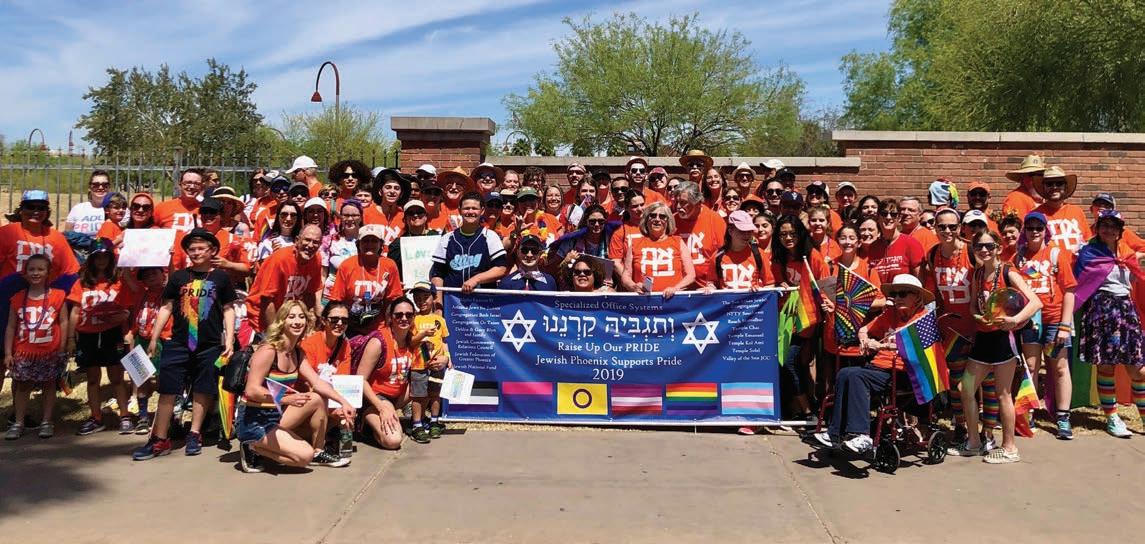
Musicians Chris and Johnny Rice erform at Beth Ami Temple’s annual spring concert on Sunday, April 7. Pieces played ranged from Franz Liszt’s “Hungarian Rhapsody” to Gershwin’s “Rhapsody in Blue” to the Horowitz arrangement of Sousa’s “The Stars and Stripes Forever.”
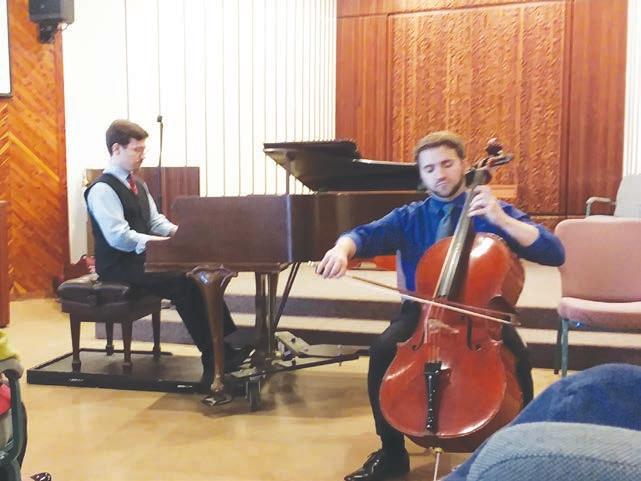
President and CEO of the Arizona Israel Technology Alliance Leib Bolel gives a presentation about the work the organization is doing at its first annual luncheon at the Valley of the Sun JCC on Monday, April 2.
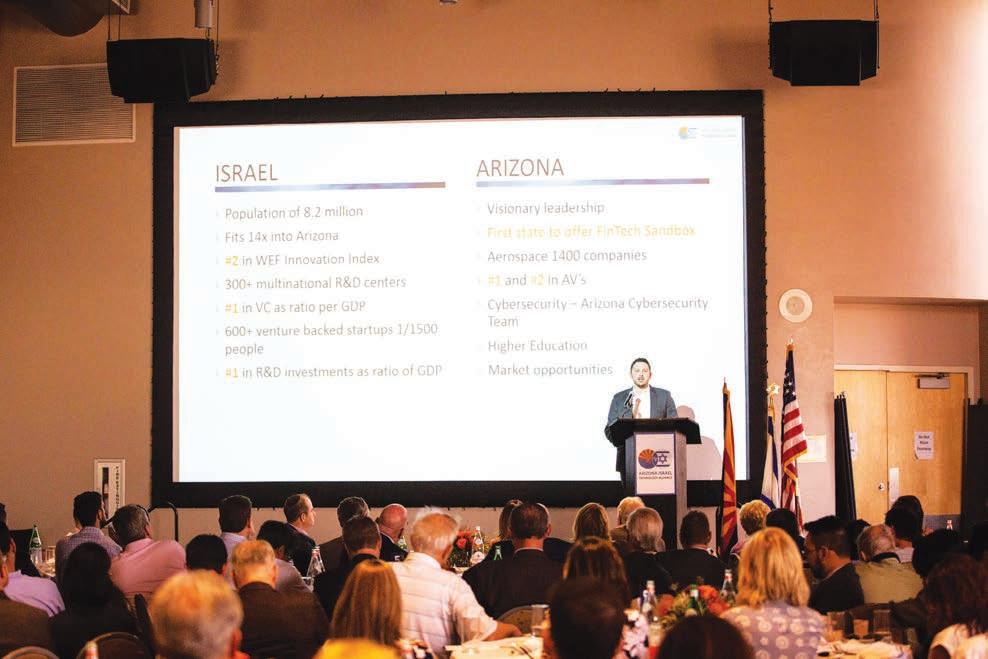
Musicians Malka Wolman and Erez Kessler perform for a preschool audience on Friday, April 5, as part of the Valley of the Sun JCC’s Early Childhood Center program.
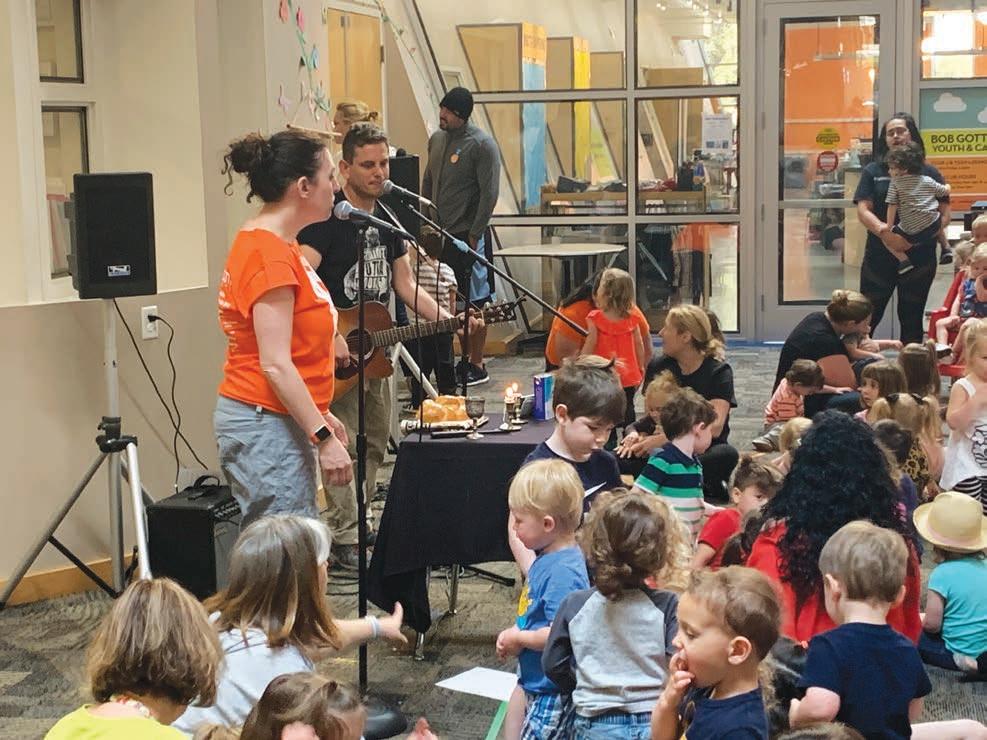
Jean was a remarkable woman. Born to Israel and Helen Menin in Sioux City, Iowa, on Sept. 30, 1927, Jean was an only child but not for long. Her family was soon permanently joined by her widowed aunt and two young cousins. An excellent student, Jean also participated in a wide range of sports and played piano throughout her childhood and teenage years.
In 1945, Jean began college at The University of Minnesota in Minneapolis. It was there that she met the love of her life and husband for 56 years, Harold Grossman. Though Jean left college to marry Harold in 1948, she went back to school in the 1960s and finished her B.A. in communications in 1970.
Jean’s years in Minneapolis were filled with friends, charitable work and raising their three daughters. Eventually, there would also be six wonderful grandchildren who brought her joy and whom she adored. While living in Minneapolis in the 1960s, Jean decided to have a garage sale to benefit the American Cancer Society. Her sale grew each year, eventually filling several warehouses, and raising hundreds of thousands of dollars.
When Harold retired in 1981, they moved to Scottsdale and continued their philanthropic work. The community and in particular, the Jewish community, has been enriched by their leadership and continual support. After Harold’s death, Jean continued their joint passion for philanthropy. In addition to making donations, she contributed ideas, served on many committees and mentored others. She truly cared how Jewish organizations could best operate and be sustained. Some of her favorite projects included the Israeli Fellowship Program at the Mohammed Ali Parkinson’s Center, the Jewish Day School Free Loan Scholarship Program, and the funding of a gym for IDF soldiers in Israel. She also underwrote the Arizona Challah Bake, which involved over 600 Jewish women in the Valley.
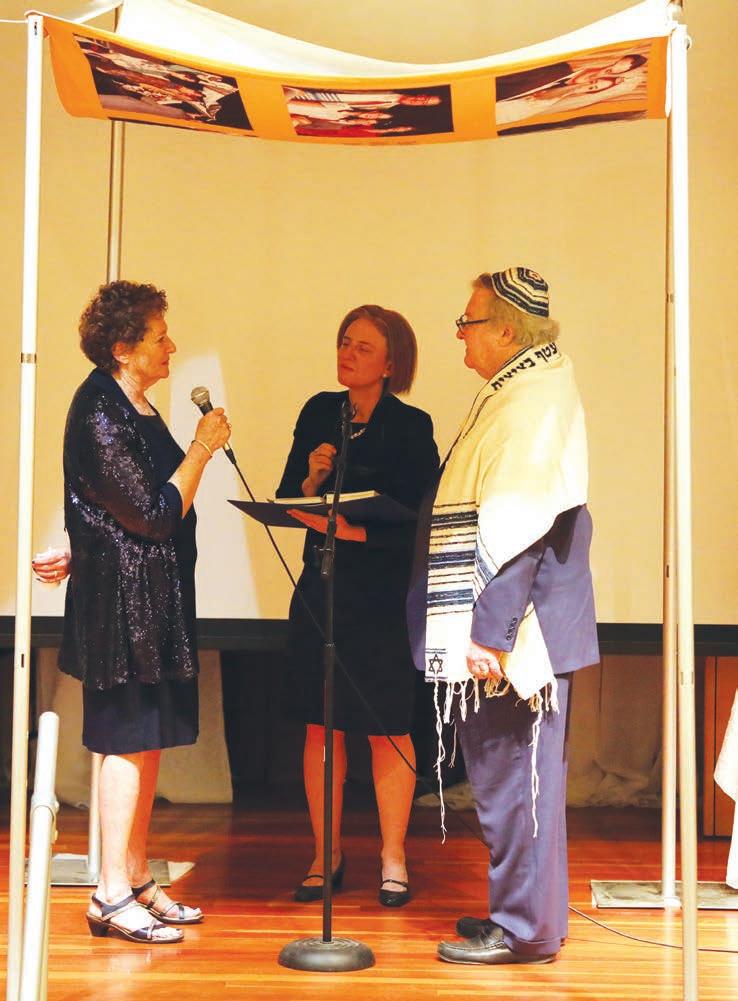
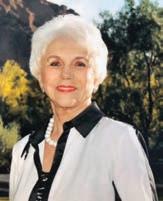
In 2005, Jean was honored with the very prestigious Medal of Honor award given by the Jewish Federation of Greater Phoenix. This award recognized her outstanding leadership, service and devotion to Jewish causes.
Jean had many passions. She loved spending time with family, especially her grandchildren. She appreciated each in a special way and was a huge part of their lives. They have been inspired, encouraged and deeply loved by her. Jean also enjoyed reading, walking in the mall and eating chocolate. She cherished her many friends and had a knack for conversation with everyone!
Jean is survived by her three daughters, Nancy (Irv) Leon, Mary (Art) Schuman and Molly Levitt; her six grandchildren, Sam Leon, David Schuman, Joanna Schuman (Ricky Hougland), Ellie, Anna and Jenny Levitt. She was predeceased by her husband, Harold; her parents, Israel and Helen Menin; and her son-in-law, Thomas W. Levitt.
A life well-lived, Jean’s favorite quote sums up her legacy: “I expect to pass through this world but once. Any good thing, therefore, that I can do or any kindness I can show to any fellow human being, let me do it now. Let me not defer nor neglect it, for I shall not pass this way again.”
Jean will not pass this way again but she will live on in our hearts.
Services have been held.In lieu of flowers, donations in memory of Jean may be made to The Jewish Federation of Greater Phoenix, 12701 N. Scottsdale Road, Scottsdale, AZ 85254. Arrangements by Sinai Mortuary.
Selling Below current market value !!! 2 Single plots in the highly desired Temple Chai Section. May be upgraded to a companion (burial for 2) space through the cemetery.
Judi Glass 602-448-4099
Ryna Jean Grossman had the most spirited, positive attitude that anyone could imagine, but that was Jean!
When Benjamin Gottlieb opened his own law firm a couple years ago, he was just 31.
A 2010 graduate of Arizona State University’s Sandra Day O’Connor College of Law, Gottlieb worked for several different firms before founding MacQueen & Gottlieb in 2016.
The firm, which focuses on commercial and real estate litigation, started simply with Gottlieb and his partner, Patrick MacQueen. Now it has eight dedicated attorneys and six professionals.
His success has not gone unnoticed: Gottlieb was named a Super Lawyer Rising Star two years in a row.
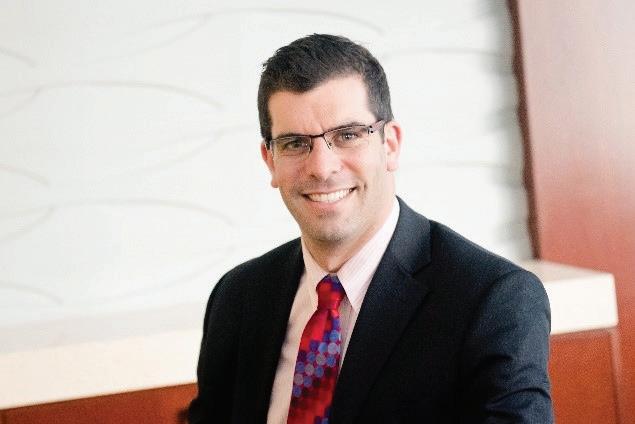
What made you want to be a lawyer?
I was always really close with my father and he was a lawyer. Ultimately, he went into business, but he always left me with a positive impression with his experience in law school. He said that it changed the way he looked at the world and it helped him develop his analytical skills. He could always look at a problem or a situation and see both sides of the issue.
You’re from Michigan originally. How did you end up in Arizona?
My older brother went to ASU as an undergrad and I remember coming out and visiting him in March every year he was in school. Now I take the weather for granted, but coming from Michigan back then it would be like 82 degrees every single day and there wasn’t a cloud in the sky. I kept thinking it was beautiful out here.
And then one year while I was visiting my brother, I attended a constitutional law class at ASU’s law school. I was extremely impressed with the professor and the students. Everyone seemed stimulated and happy; I got a really good vibe from that experience.
So with the combination of great weather and the experience in the class, I applied to ASU and got in.
You were recently involved in a lengthy trial regarding water law. What was that all about?
Because of my reputation in the community, we generate new clients that span the whole real estate gamut. That
was a case that dealt with two neighbors that live in the base of South Mountain. My clients had their home flooded due to a wall their neighbor had built. When it rained there would be a whole lot of water that flowed down the mountain and it would flow across both properties, but because the neighbor had built a wall, all the water was diverted and flooded my client’s home.
That was an interesting trial because I probably learned more than I wanted to about hydrology and water engineering. It got extr emely technical in terms of analyzing rainfall data and forecasting how water flows based on topography.
It got pretty dry, but part of my job was to make it fun and interesting for the jury, so I really enjoyed the experience. I became a water law expert through that trial, because in Arizona it’s illegal to divert water.
Developing that very specific expertise is necessary in order to be effective in the courtroom, right? What keeps you motivated?
That is the essence of being a trial lawyer; every case has its own nuance and you add your own experts to each case. You really do have to be adaptive and become an expert. That’s why I love the job so much. Every new case is different and you get to sink your teeth into it.
What keeps me motivated is, for one, you have the pressure of performing well for your client, but you also care for them and want to do well for them. The only way to do that is to become an expert on the file and create a better case to persuade the other client to settle, or persuade the jury to make the decision to favor your client.
What was your goal when starting the firm?
If I were to be 100 percent candid with you, I don’t think in a million years we ever thought — well, maybe MacQueen did and if he did, he never told me — that we would be an eight-lawyer firm in just three years. I think we were just hoping to get enough work so we could pay the utility bills and the rent.
It just started with me and MacQueen and one paralegal. We knew we had good
marketing abilities and were liked by clients, but I think we were just trying to survive when we first opened.
How did you two meet?
MacQueen and I worked at a boutique law firm called Combs Law Group. We did really well together there and became partners at that firm. The two of us basically started to build a book of business and it was growing pretty rapidly. One Saturday afternoon on the golf course we just decided that we should try opening our own firm.
What’s the future for the company?
We’re looking for continued growth. Right now, we feel like the top real estate firm in both Phoenix and Arizona. We just want to continue to build on that and continue to grow our presence in the both the non-legal and legal communities.
In terms of numbers, right now we’re
at eight lawyers and by the end of the year we want to get to 12. By the end of next year we want to get to 20.
What’s a perfect day off for you?
I was a very competitive golfer when I was younger and the captain of my high school golf team. I almost got onto Michigan State’s golf team, but they were so good, I didn’t quite get in. When I got to law school, it took a back seat for everything else, but lately I’ve been getting back into it, and I’ve been playing in golf tournaments again. A perfect day for me is playing in golf tournaments.
But I have three boys aged 5, 2 and 7 months, so the phrase “spare time” is paradoxical. I’m just always with my family and I love spending time with my kids. They’re a lot of fun and I love teaching them new things. My son Asher just had his baby-naming ceremony at Temple Emmanuel. JN
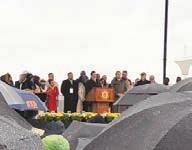

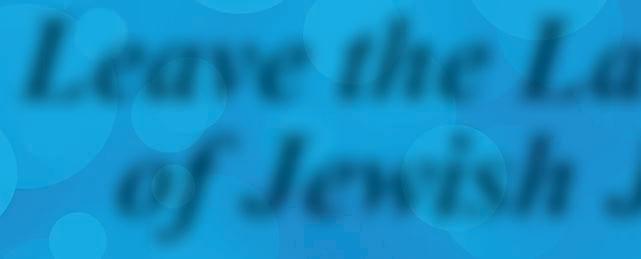
Make a charitable donation to Jewish News and help support Jewish community journalism.

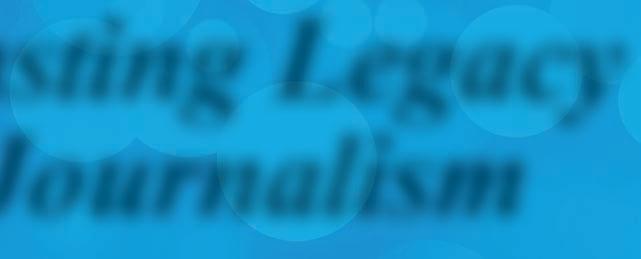
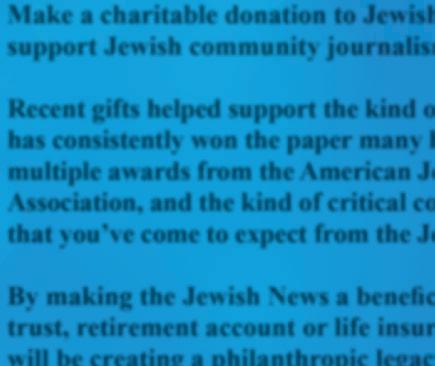



Recent gifts helped support the kind of reporting that has consistently won the paper many honors, including multiple awards from the American Jewish Press Association, and the kind of critical community coverage that you’ve come to expect from the Jewish News.
By making the Jewish News a beneficiary of your will, trust, retirement account or life insurance policy, you will be creating a philanthropic legacy that will help sustain the vibrant voice of Jewish Arizona. Whether you read us in print or online, please help us continue our commitment to bringing you the local Jewish news our community counts on.

Contributions to the Jewish News, a 501(c)(3) organization, are tax deductible. Seek independent professional legal advice before making any change to your plans.


JANET PEREZ | MANAGING EDITOR
It’s become a depressingly familiar rite that parents must go through with their children every time there is a mass shooting. But for Jewish parents, the massacre at a synagogue in Pittsburgh has burned with the anguish of thousands of years. Children have heard and talked about shootings in schools and malls, but talking about a shooting
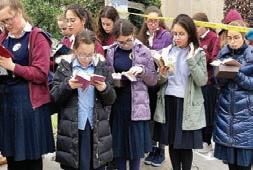

Arizona’s problem is not as big, but still has an impact on prisoners and visitors. But that has not stopped the Aleph Institute from providing its services.

Please subscribe and continue to support JEWISH NEWS with a tax-deductible contribution. Complete the form below or go to jewishaz.com/subplus
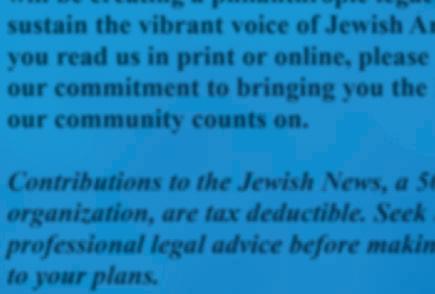
Please mail the completeted form with payment to


12701 N. Scottsdale Road, Suite 206 Scottsdale, AZ 85254

Jewish organizations keep prisoners from being forgotten